Wellbeing and Inclusion
Mrs Courtney Hoffmann - Assistant Principal
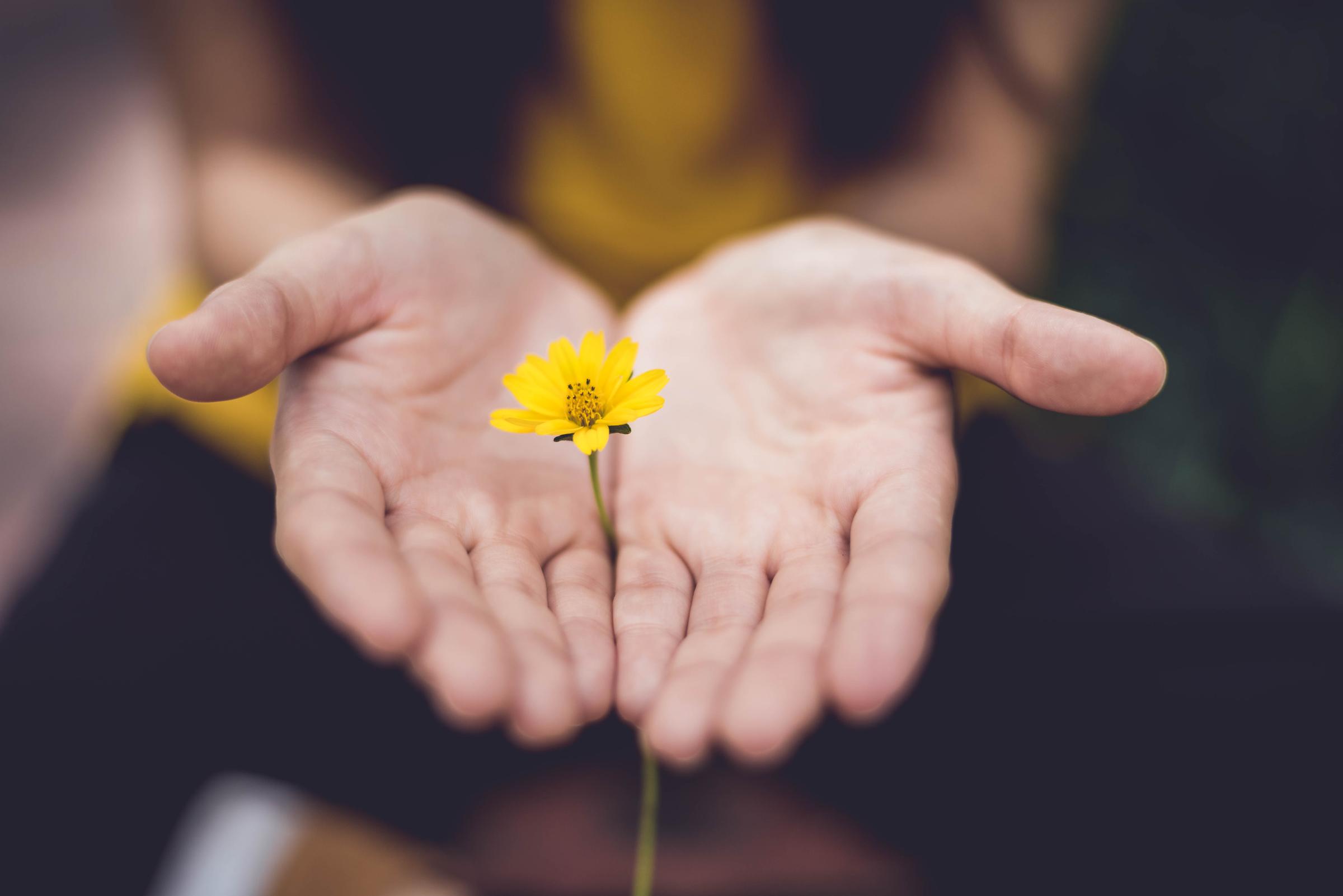
Wellbeing and Inclusion
Mrs Courtney Hoffmann - Assistant Principal
Dear Karoo Community,
Welcome back to Term 4!
I hope that you all have had a wonderful holiday and that you are all looking forward to an exciting Term 4.
Term 4 is always a busy term and with that in mind it is important to reflect on how we can be kind to ourselves and put in place wellbeing strategies to support ourselves and those around us.
Karoo PS Approach to Student Wellbeing
At Karoo PS, we endeavour to work proactively with our school community to communicate how we support our students' social and emotional development. We know that a student's wellbeing is just as important as their learning development. Therefore, as a learning community, we aim to build students skills and strategies to develop their ability to self regulate, understanding the emotions of other and to interact positively with the world around them. To communicate this we have developed the 'KPS Approach to Student Wellbeing.' This overview provides a clear outline of how we support students to learn, through restorative practices, the impact our actions can have on others and how to move forward positively.


We have continued to receive positive feedback from our community regarding how this consistent approach is supporting our students.
A year 5 parent recently shared 'I wasn't sure about restorative practices when it was introduced last year but now I can see how it helps our children problem solve and work through issues by understanding them. We are now using the same approaches at home to help with self regulation and when things happen! I have seen such a change in my children and how I help them. It really works!!
We know that consistently using strategies to support our students is essential to developing their ability to self regulate, understand how actions have impact and how to resolve conflict when it arises. We look forward to continuing to support our students as we progress through Term 4.
Student Engagement Plan - Restorative Practices
At Karoo PS we utilise the restorative continuum to elevate student behaviour, empathy and relationships. We endeavour to work with our students, parents and community to build, maintain and restore relationships for a positive learning environment. Please find below our Student Engagement Plan below for your reference.
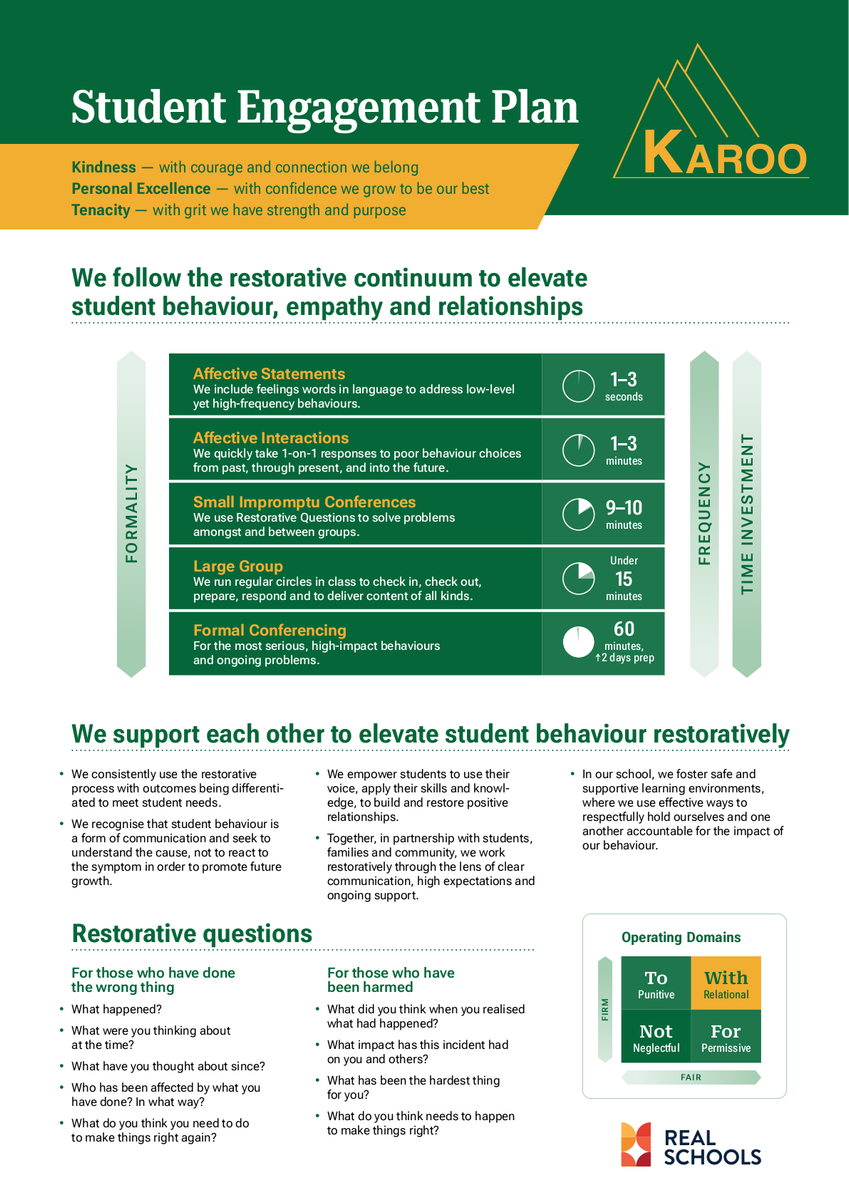

Zones of Regulation
At Karoo PS we support students to develop a greater understanding of their emotions and to regulate their emotions by utilising the Zones of Regulation framework. The Zones of Regulation (Kuypers, 2011) is a framework to develop self-regulation and emotional control. It is a systematic and cognitive behaviour approach that categorises our emotions and states of alertness that we experience into four zones; The blue, green, yellow and red zone. Optimal learning occurs in the Green Zone. However, there are different emotions that are experienced with the four different zones. The diagram below lists the common emotions that can be experienced in the different zones.
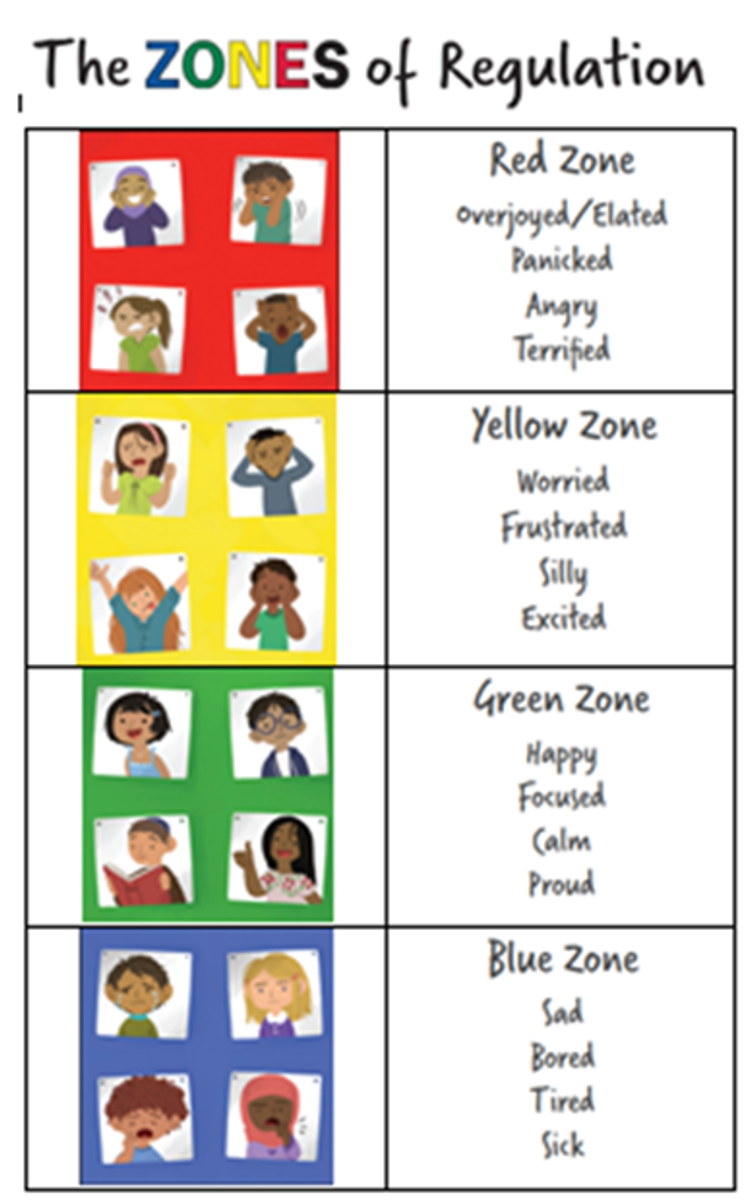

Through out 2023 all students have engaged in age appropriate learning regarding the Zones of Regulation. This enables our students learning opportunities to increase their repertoire of emotional language and strategies which they can then use to support themselves when they are experience different feelings.
Strategies to help children recognise and regulate their emotions?
If you would like further information regarding the Zones of Regulation or strategies to use at home to support your child's learning around understanding feelings and zones of regulation, please don't hesitate to contact the school and your child's teacher.
Be an Upstander
Term 4 is an exciting term for all, and especially for our Year 6 students. To complete their final year of Year 6 on a positive note, the year 6 students have been reflecting on how they are going to finish their year being an 'Upstander' and role models at Karoo PS.
As a result the Year 6 cohort has been reflecting on what it means to be an upstander and how what actions they will be responsible for to make Term 4 a great term to remember!
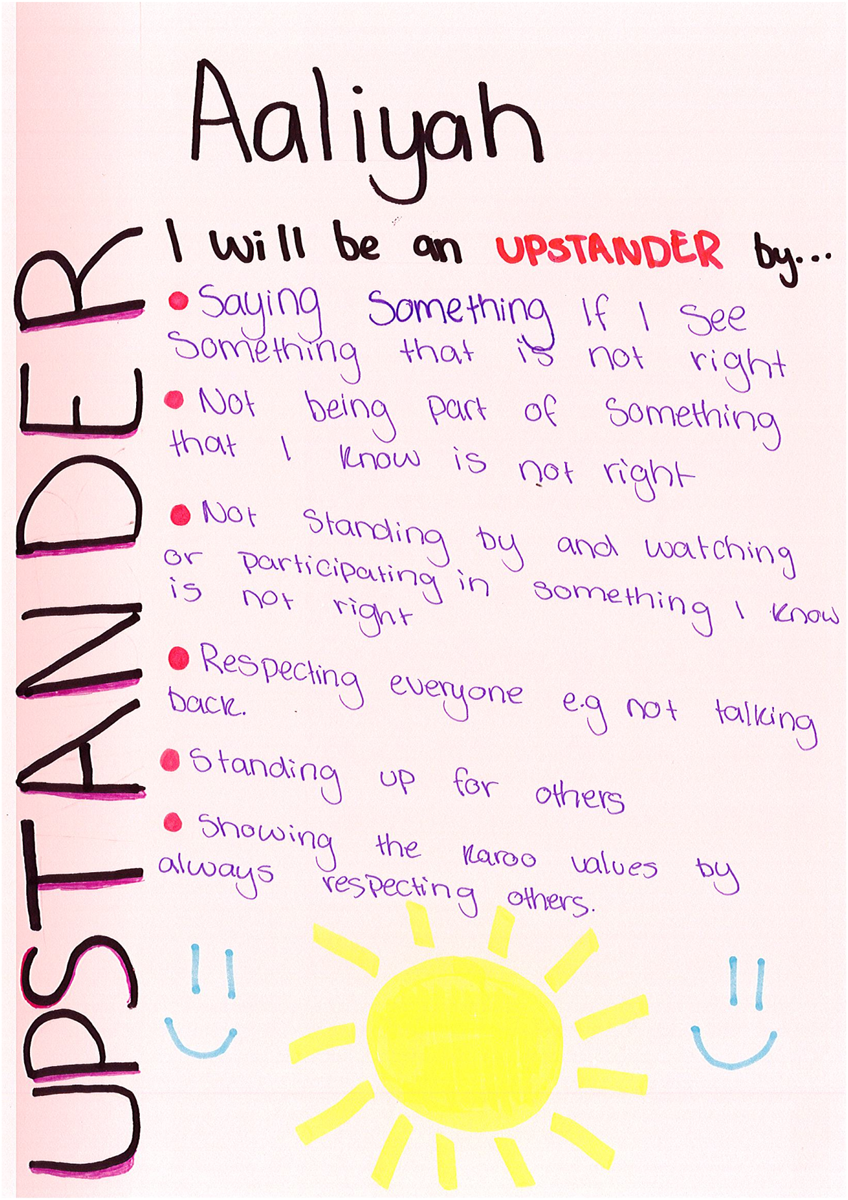
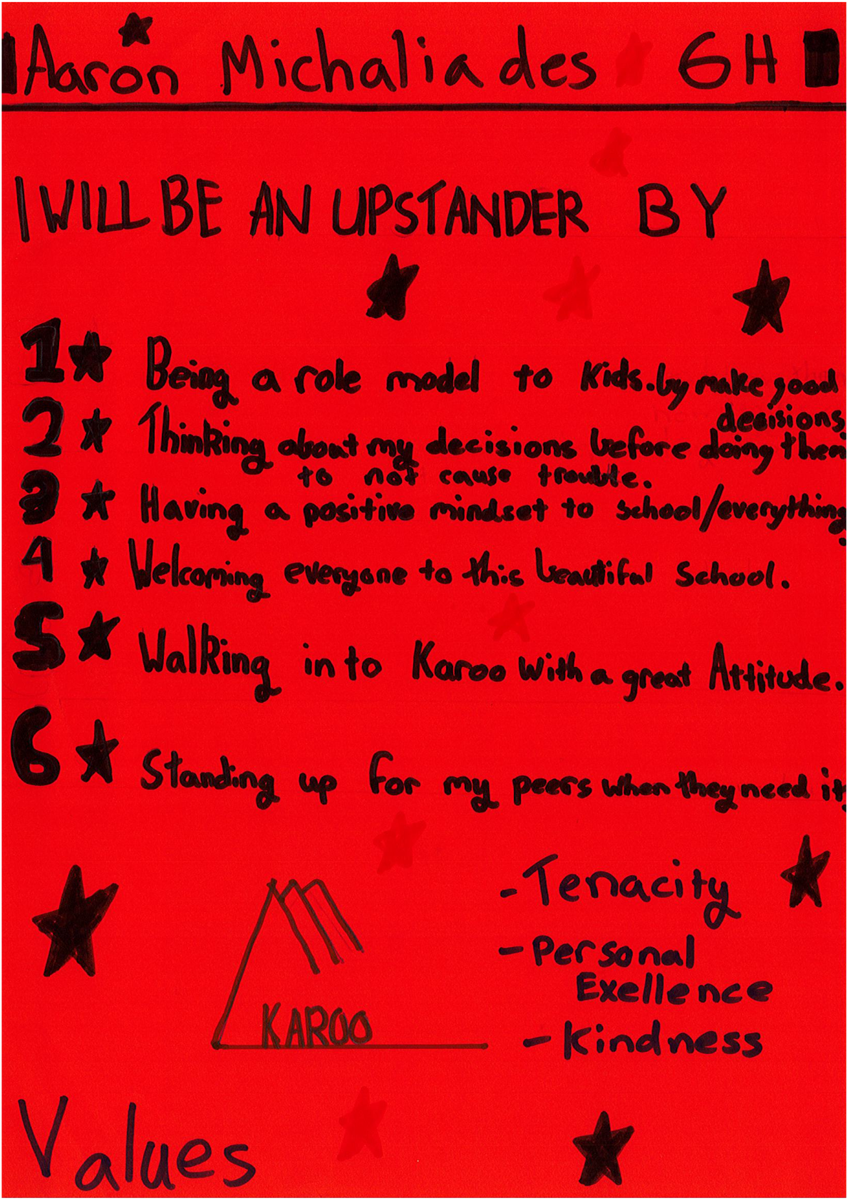
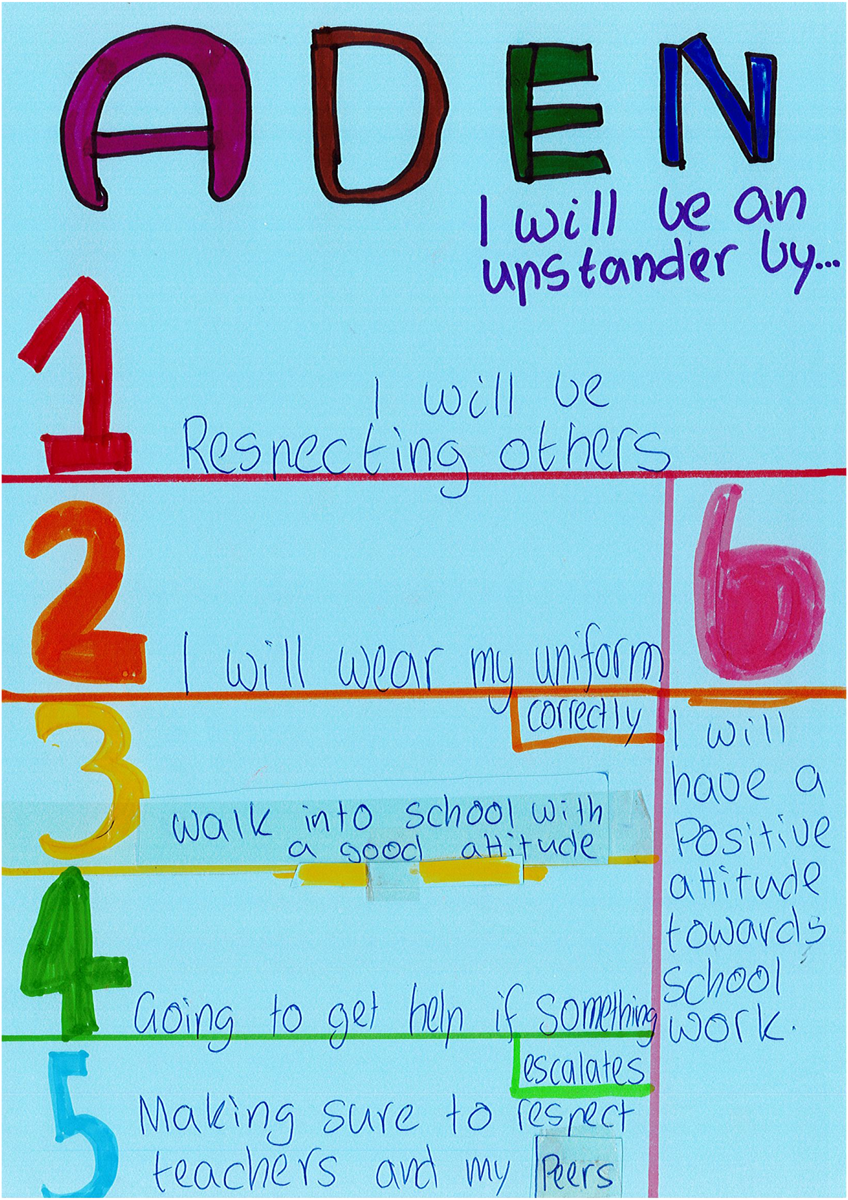
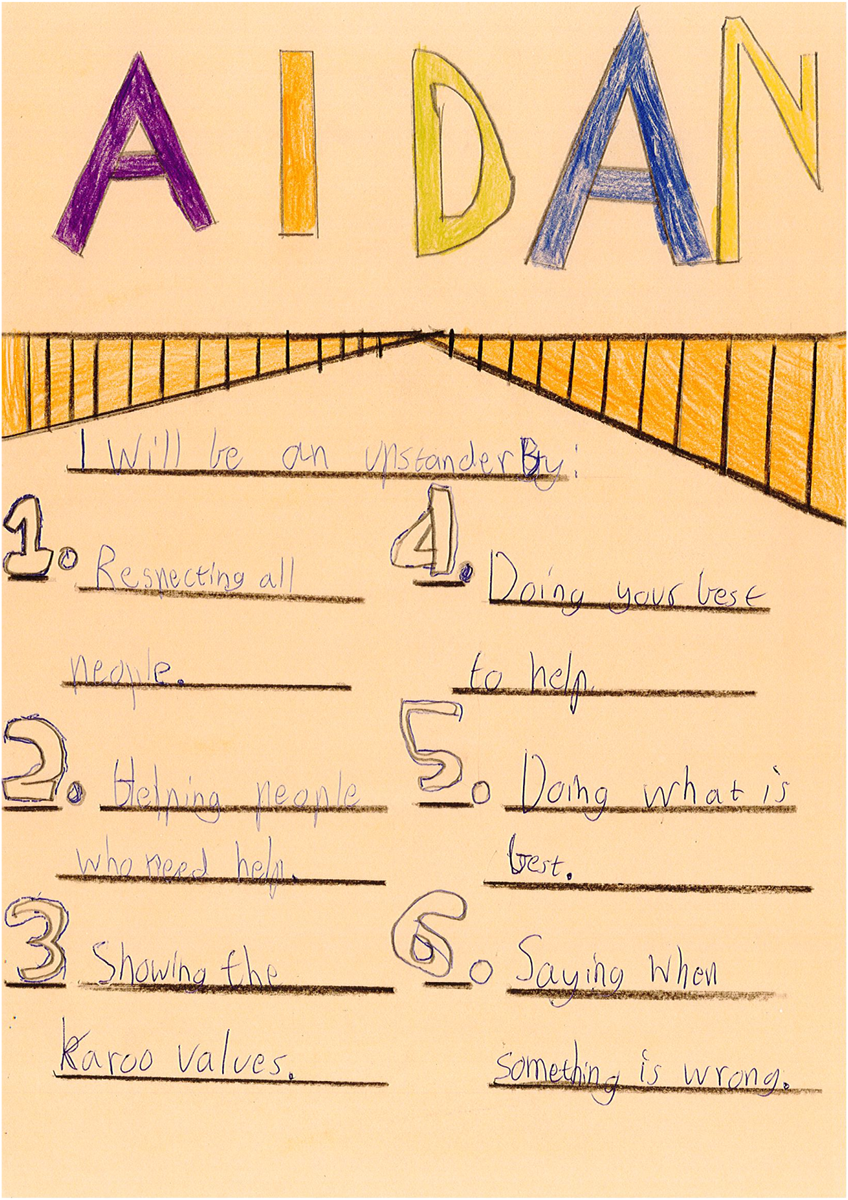

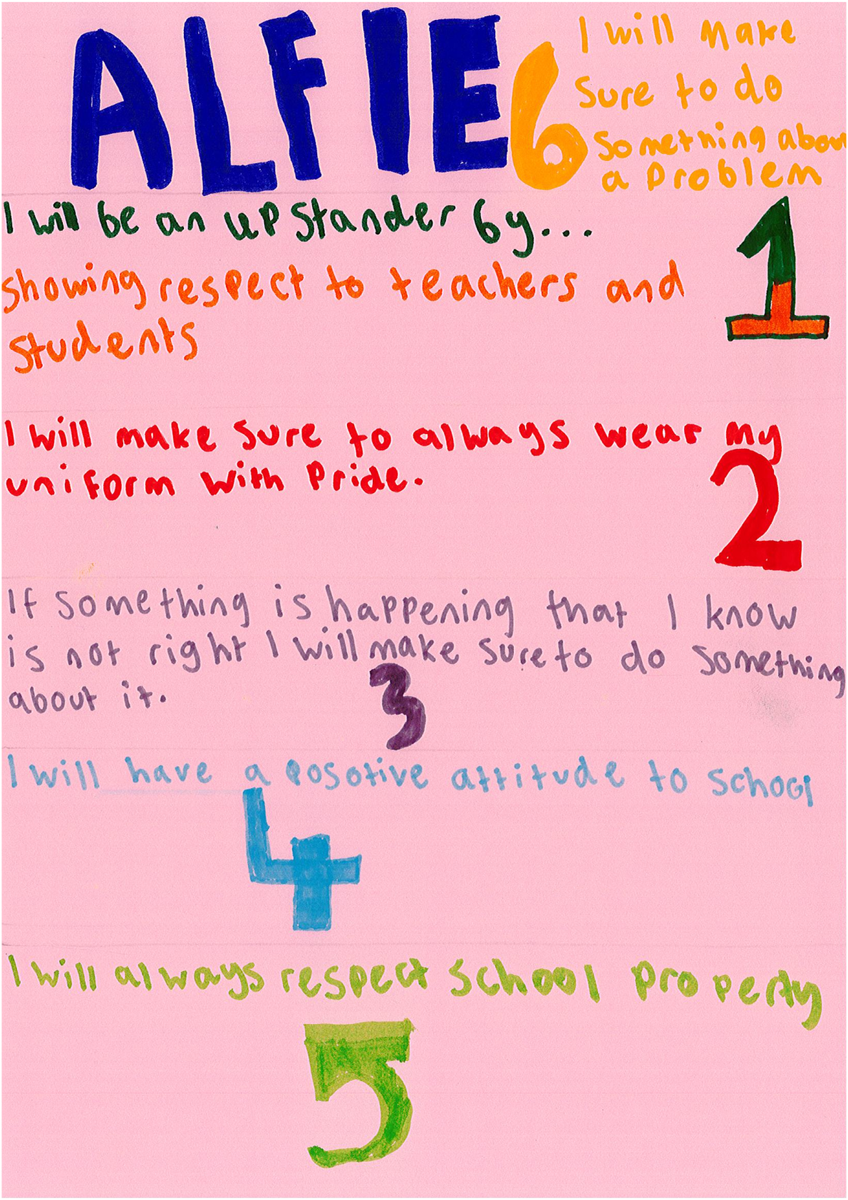
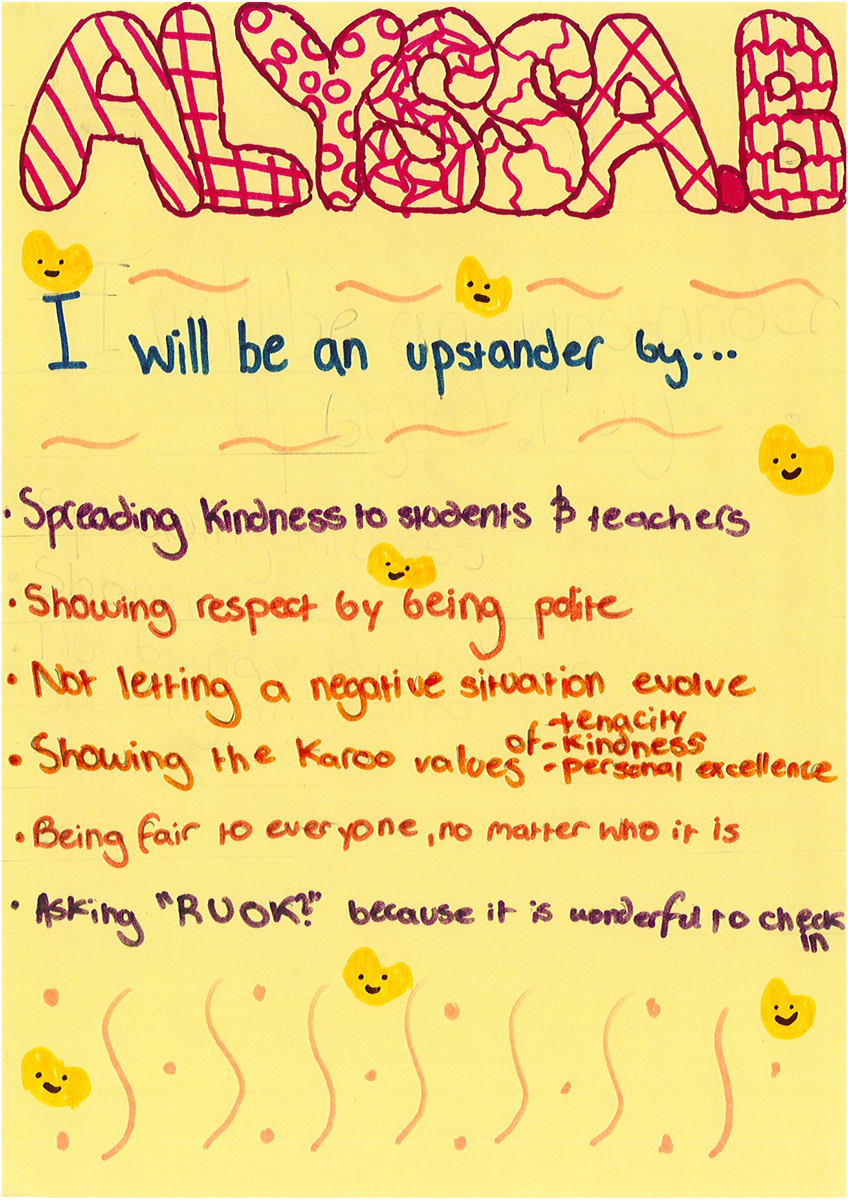
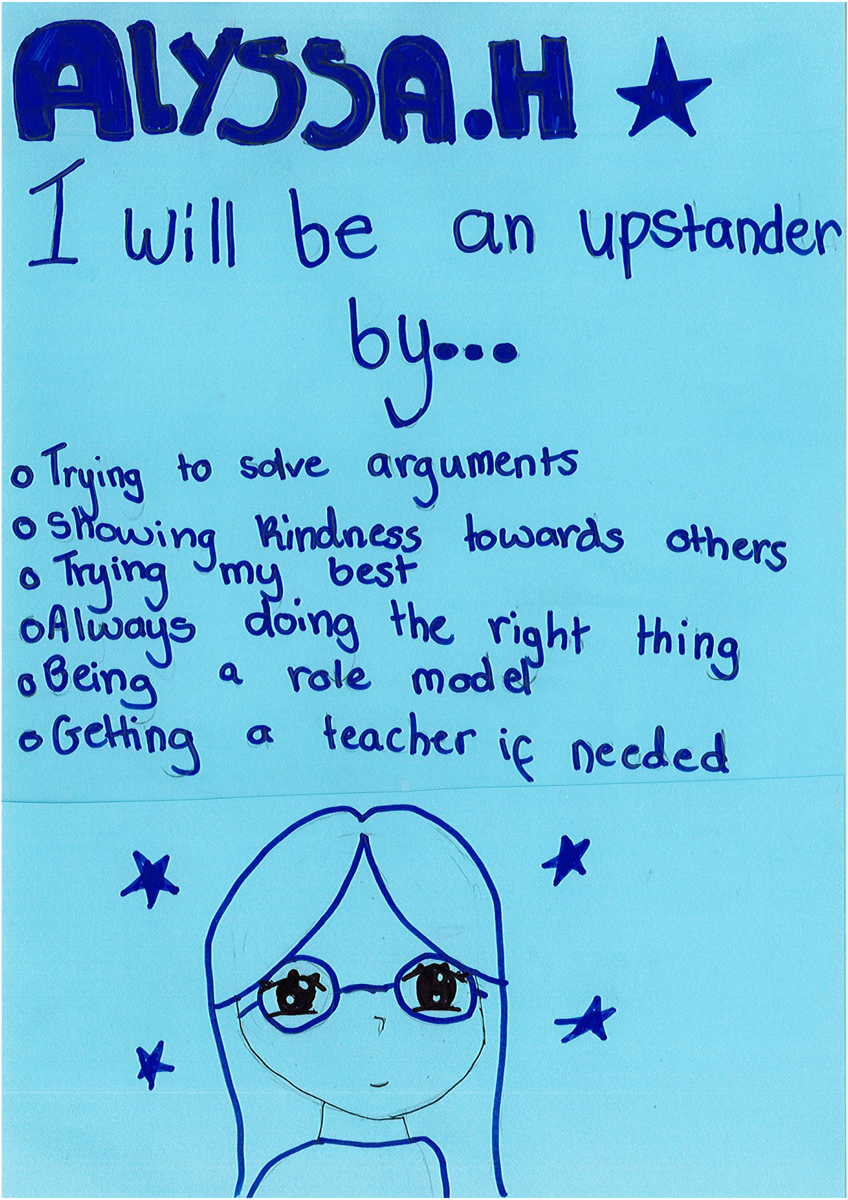








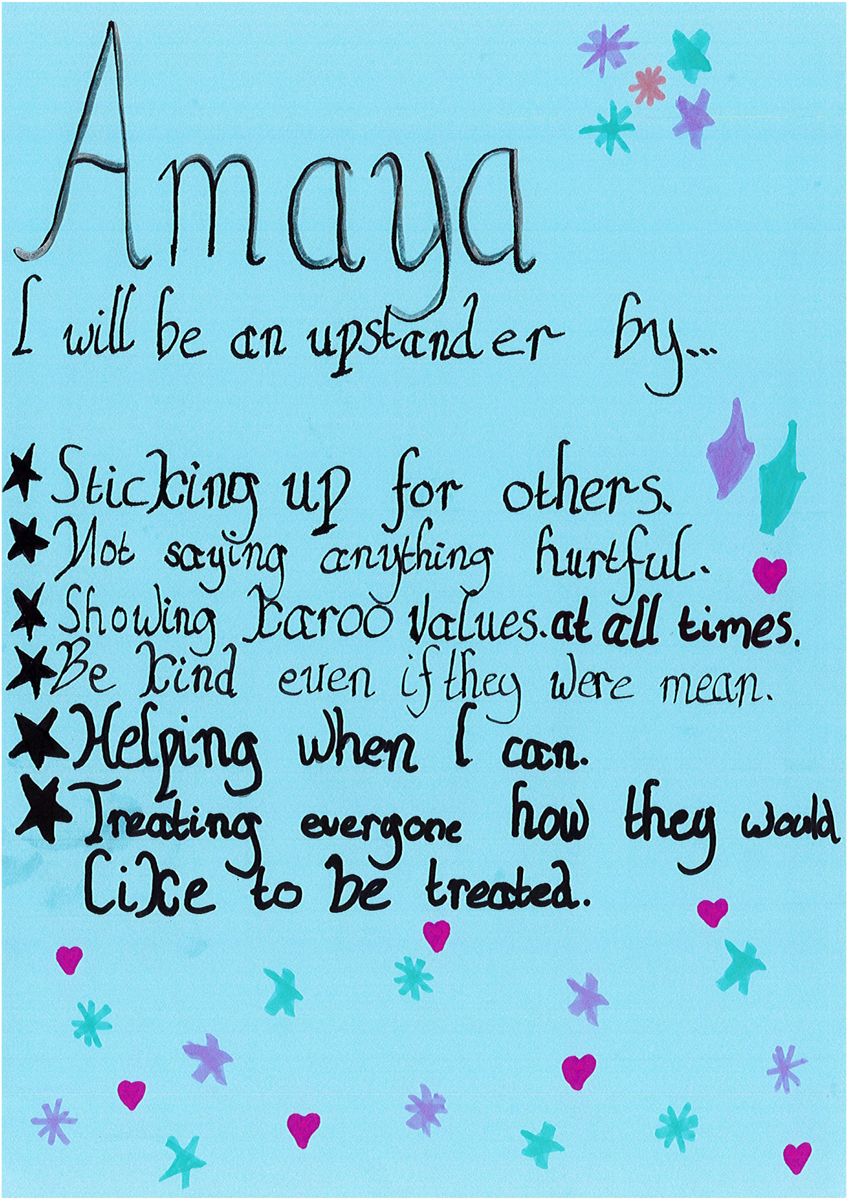
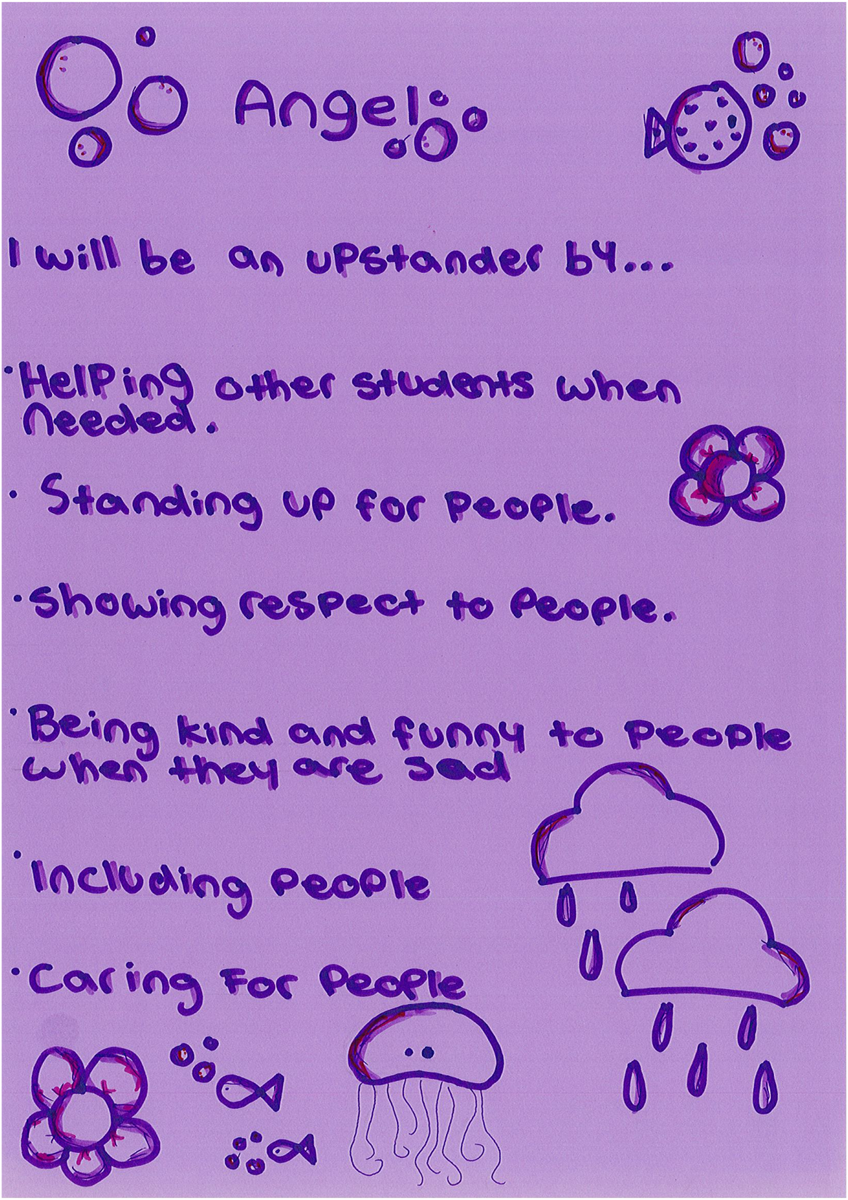
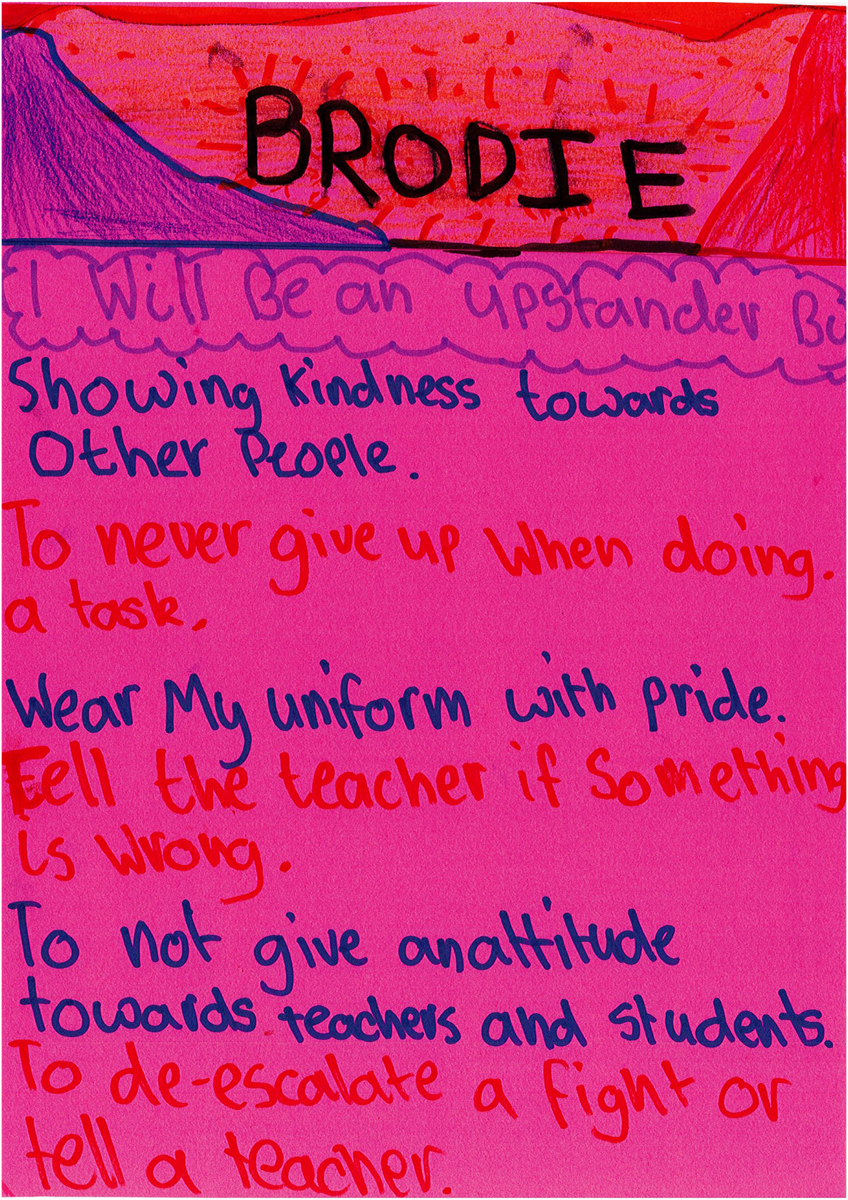
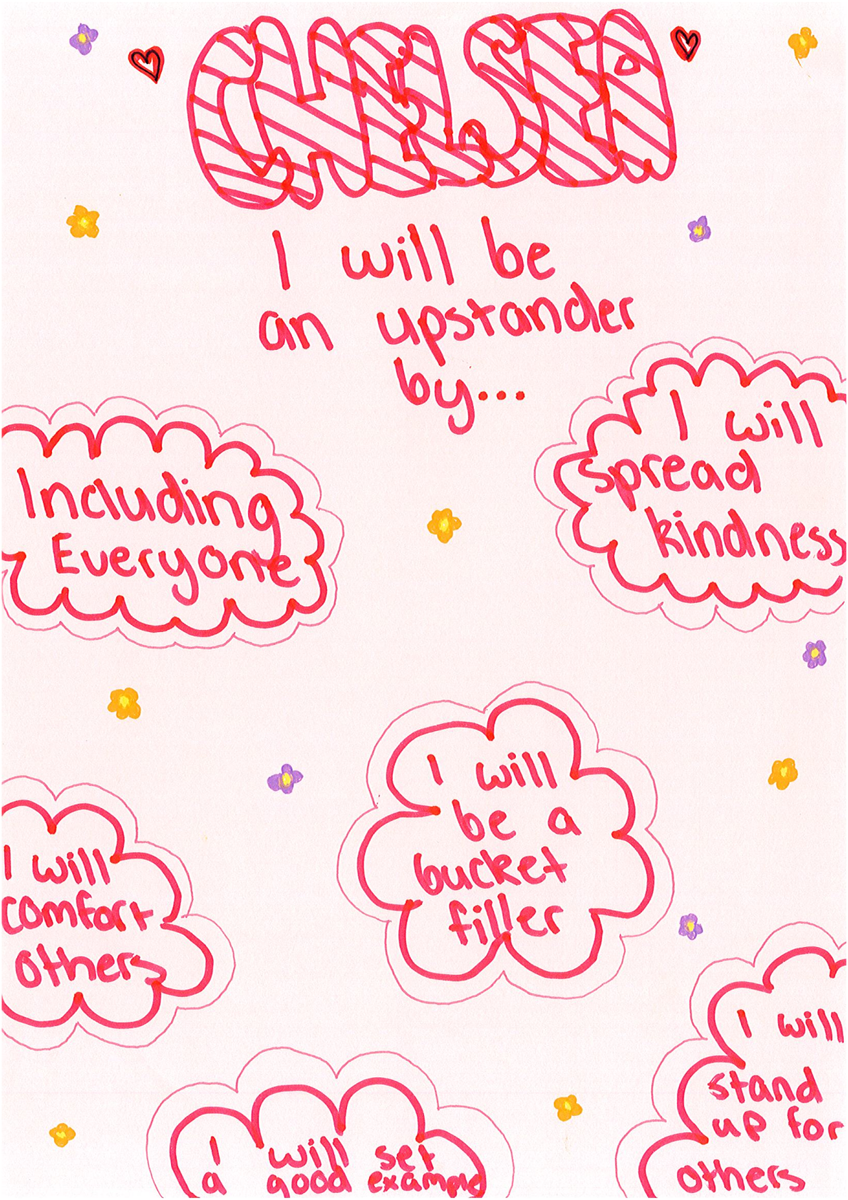
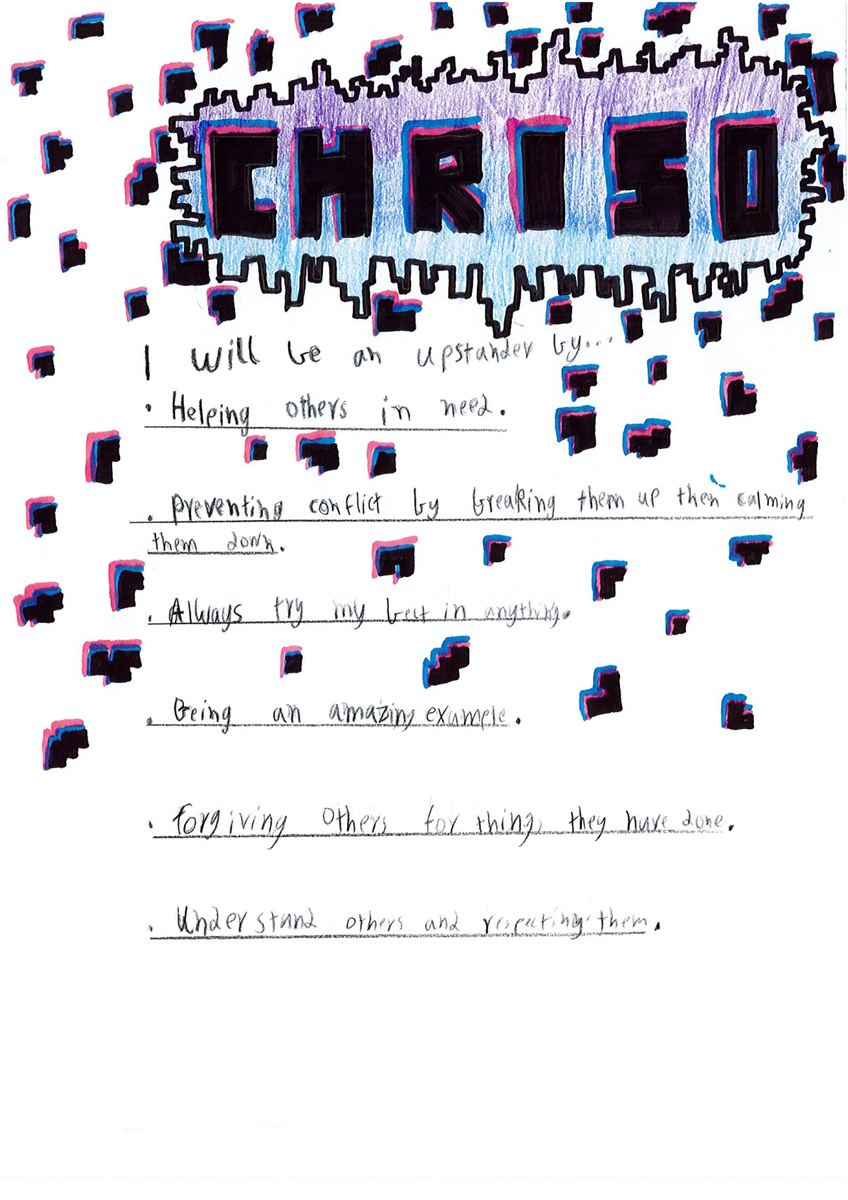

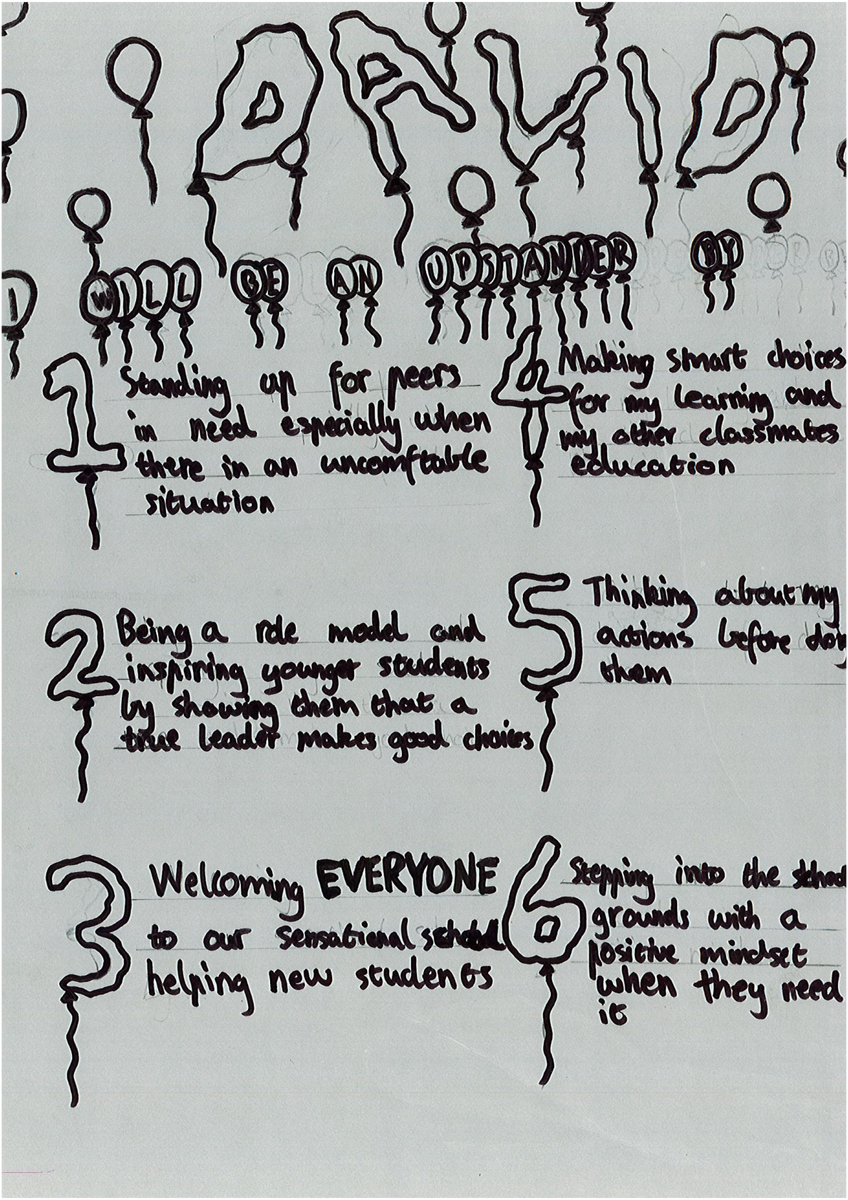
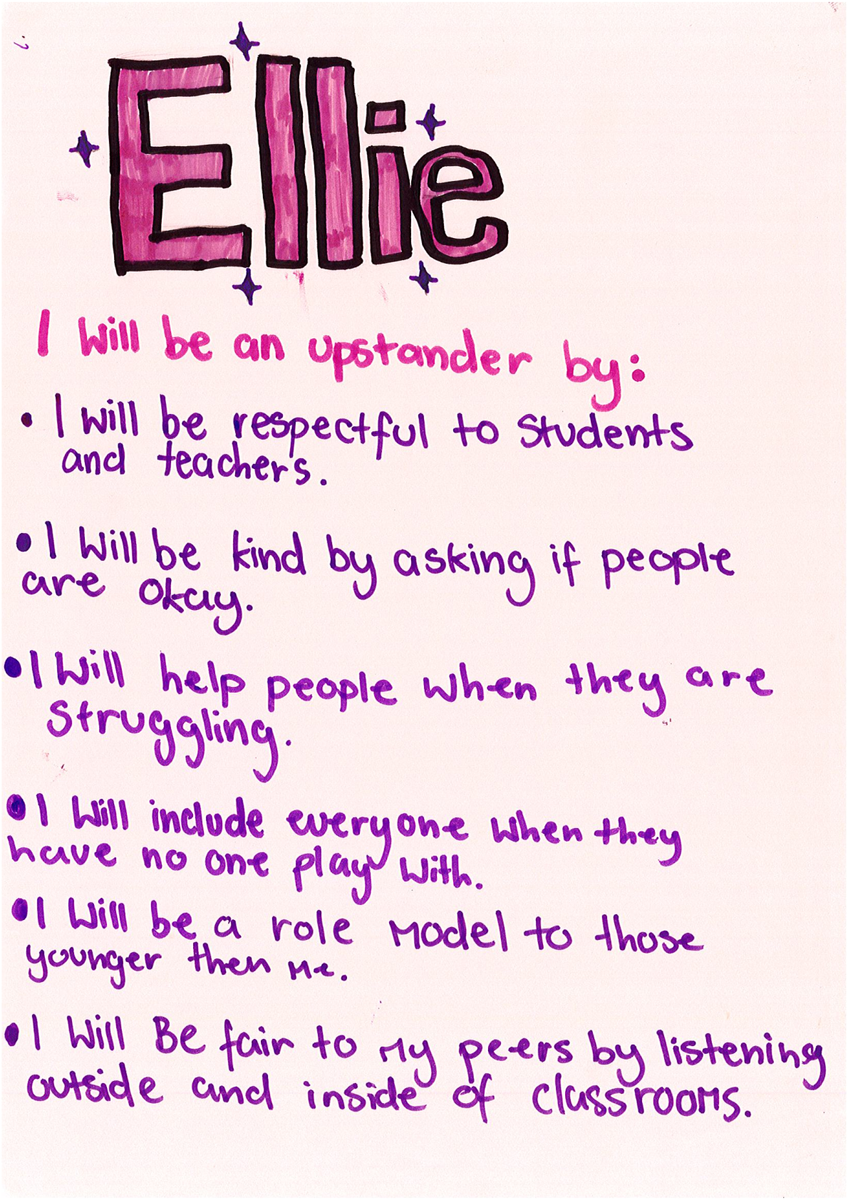
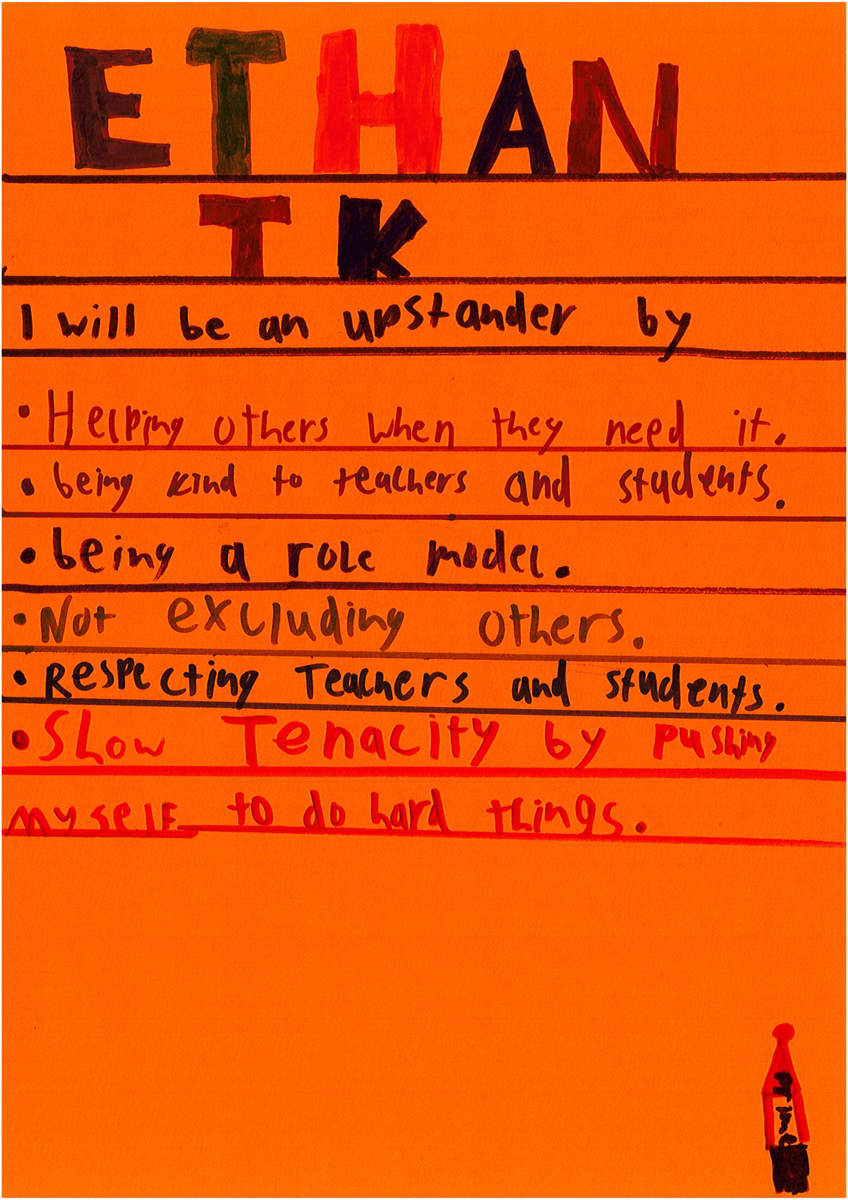









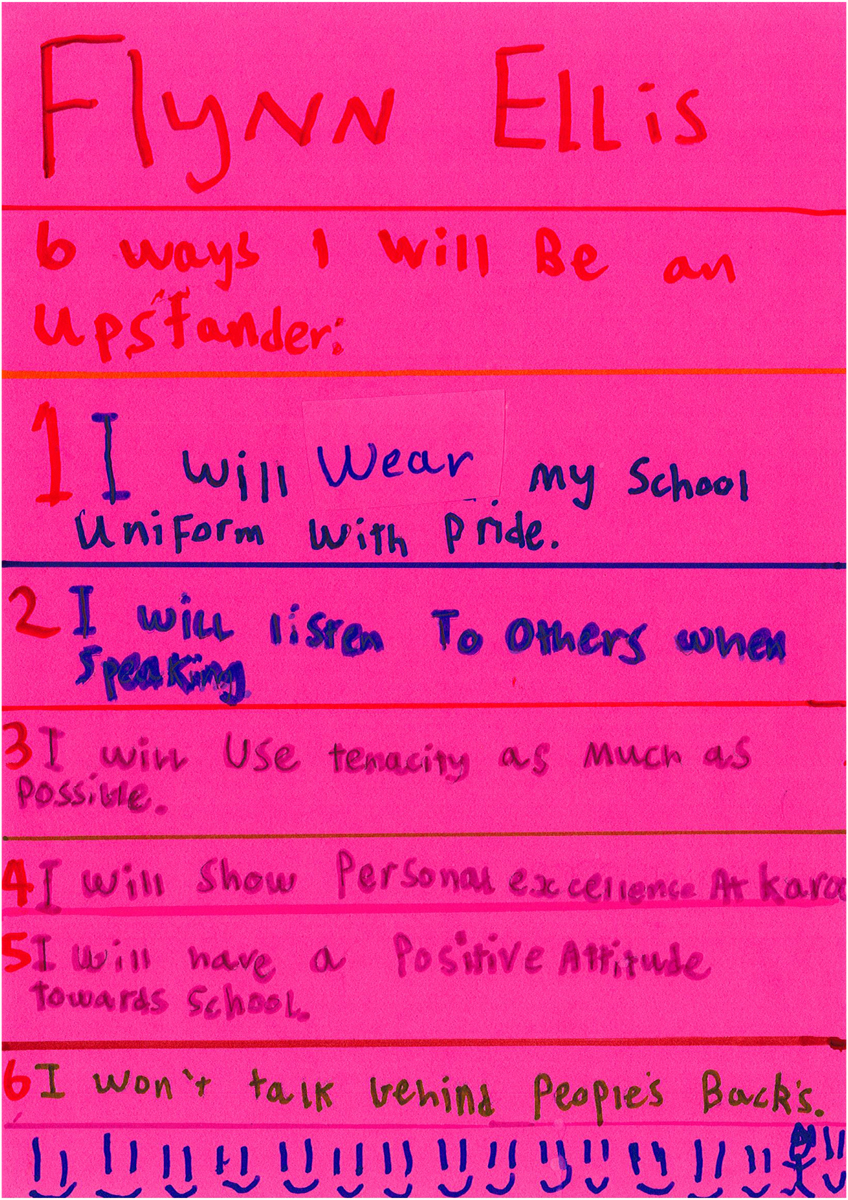

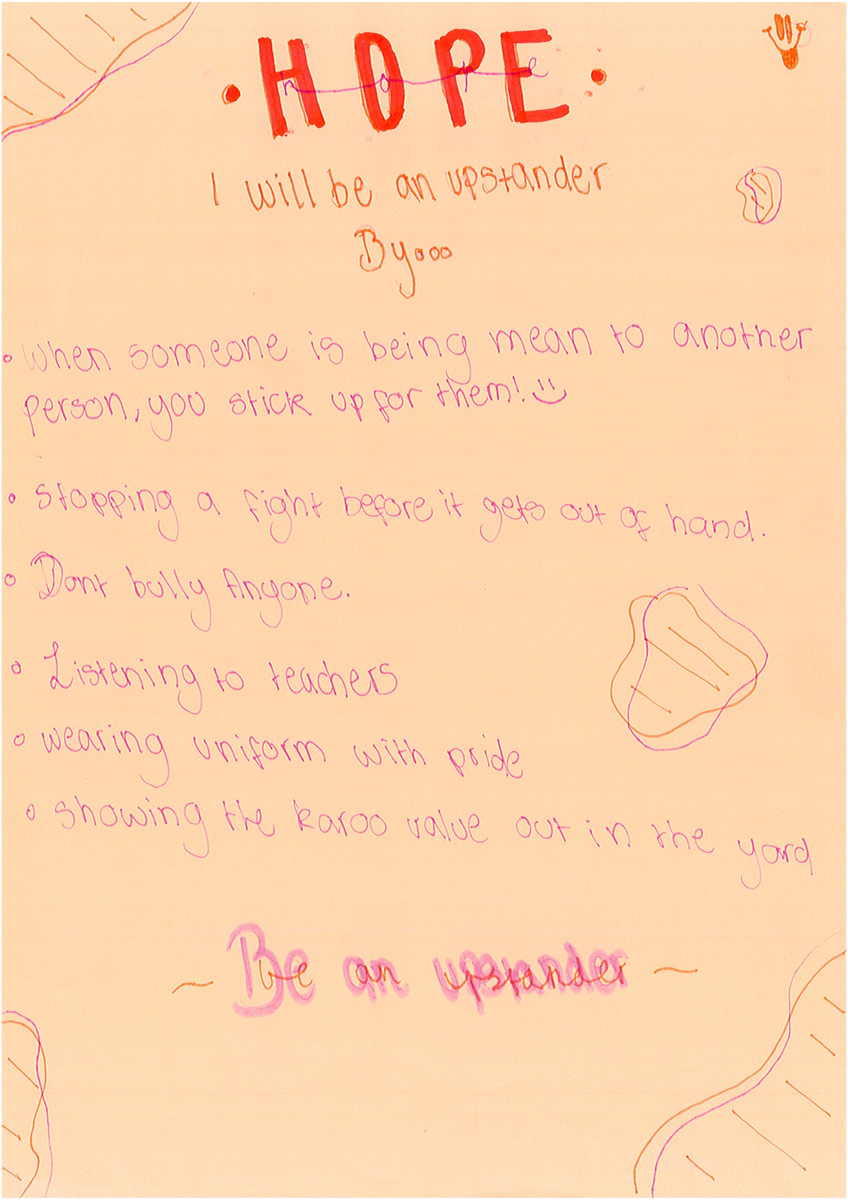
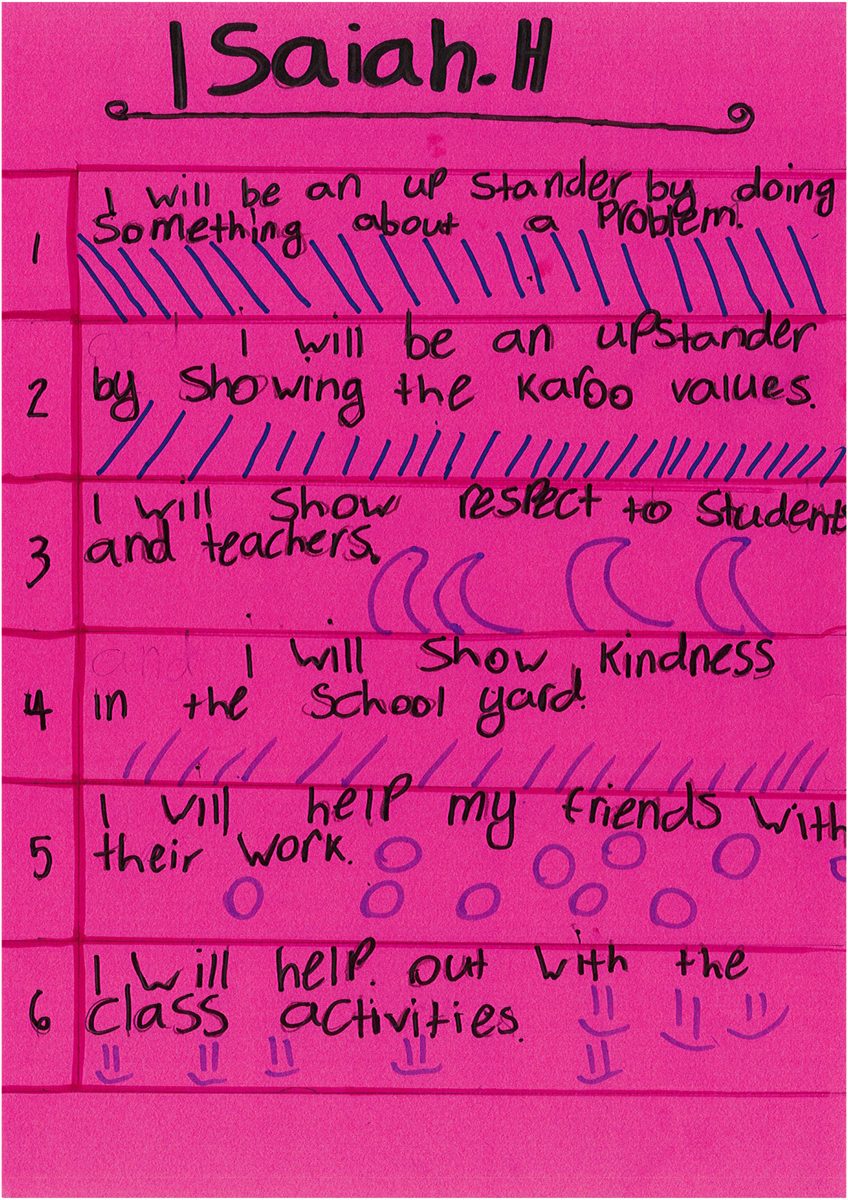


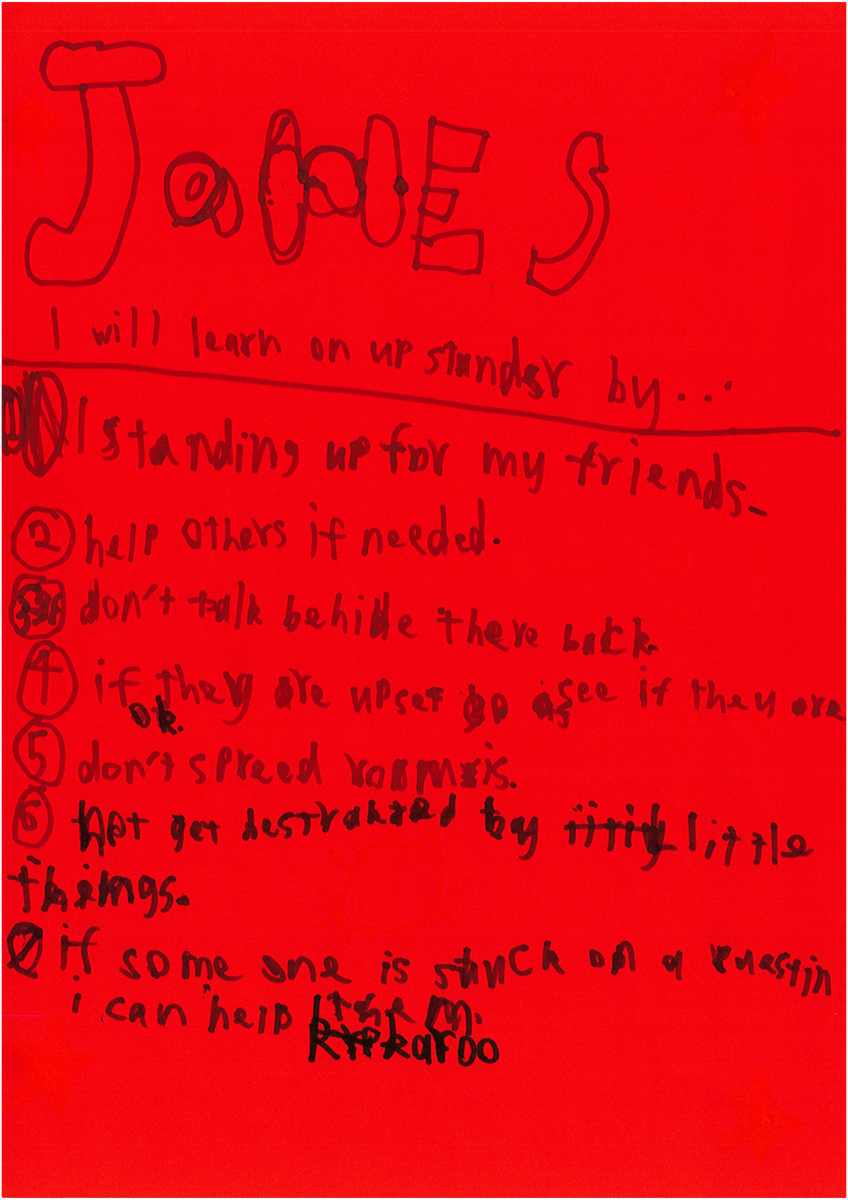
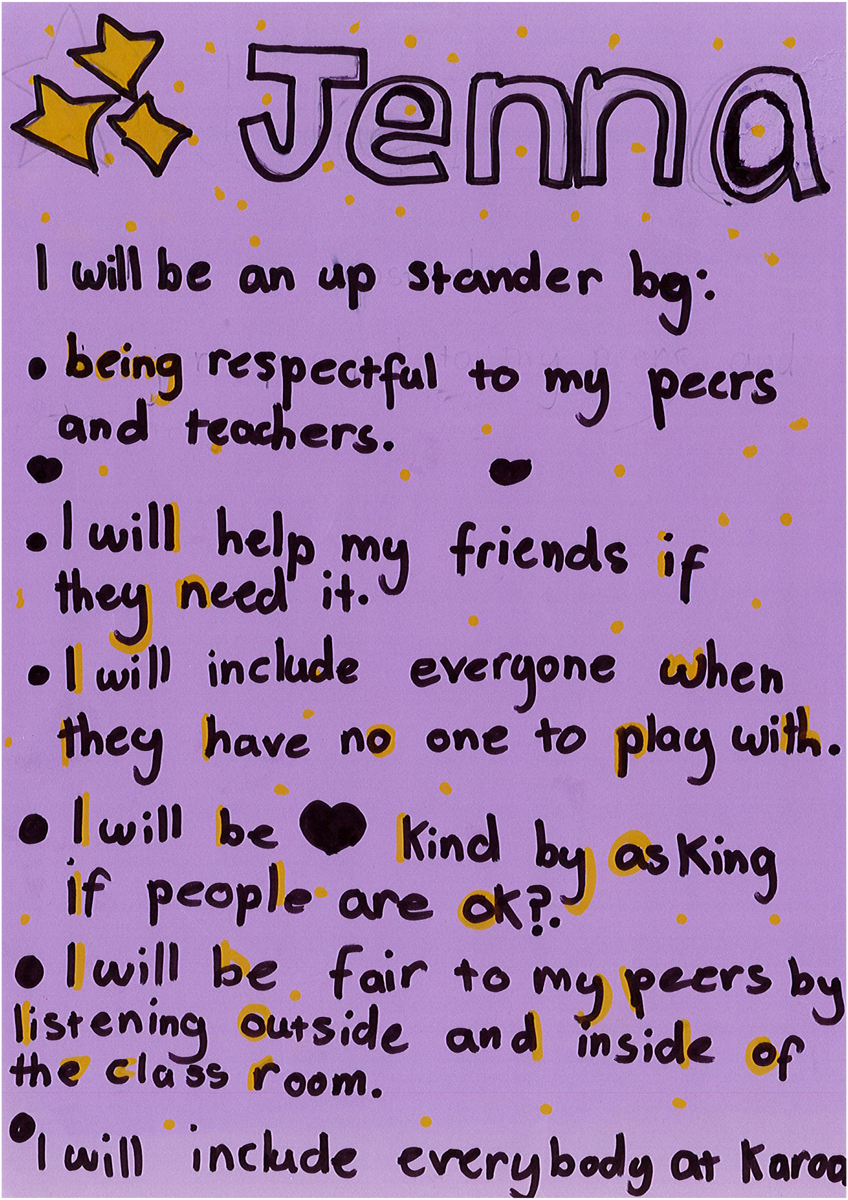









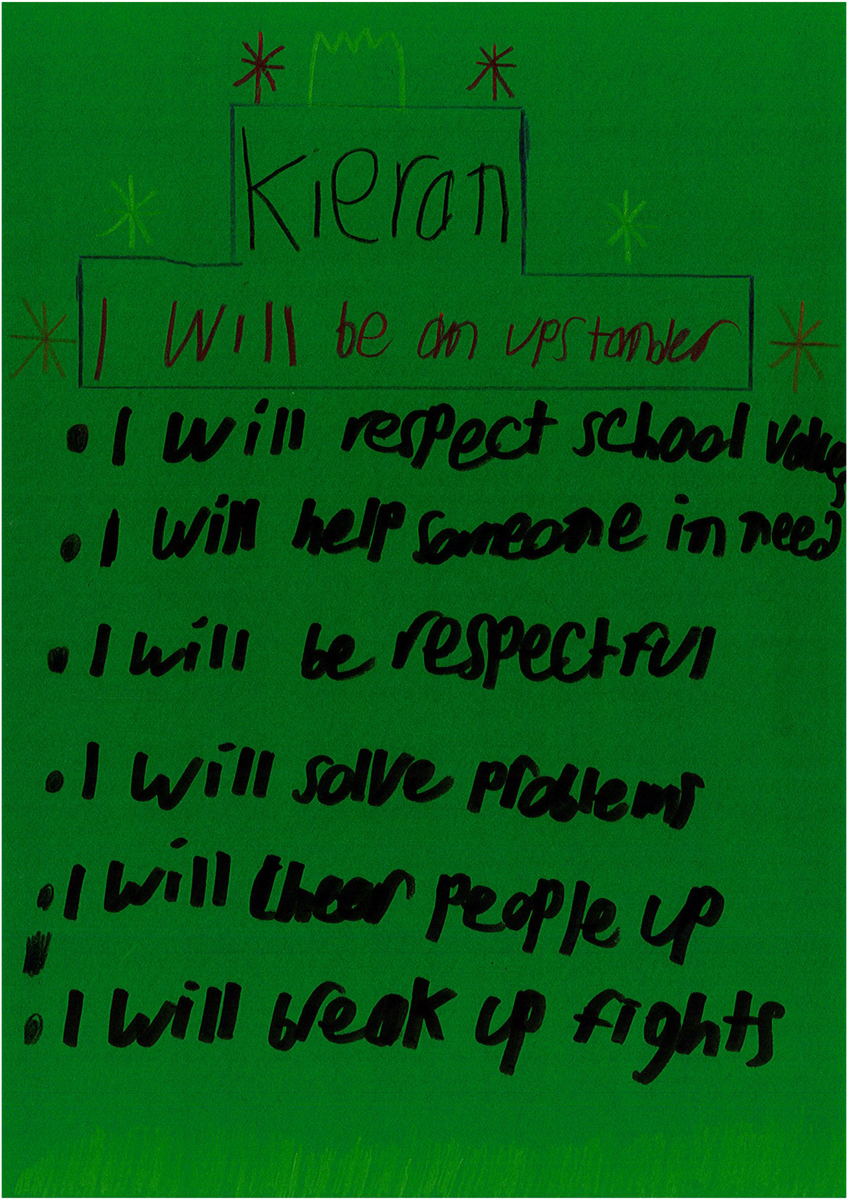

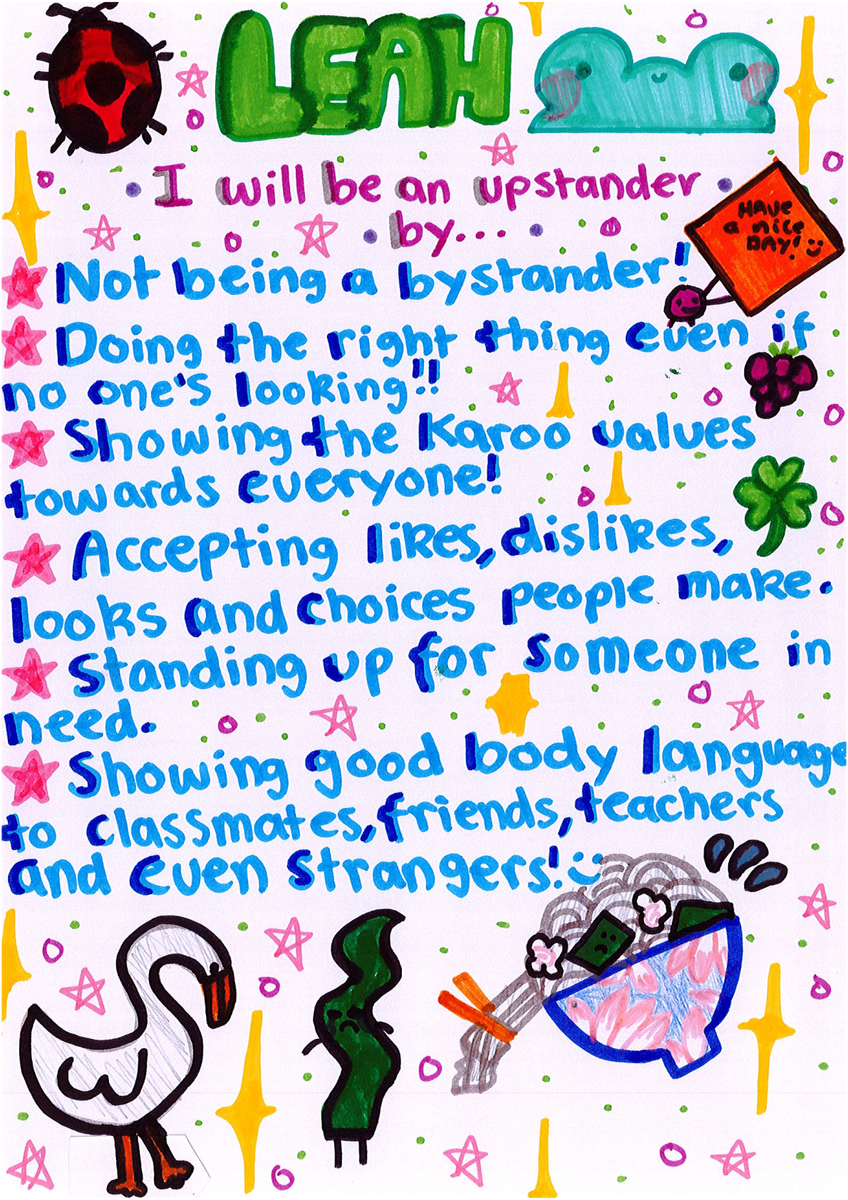

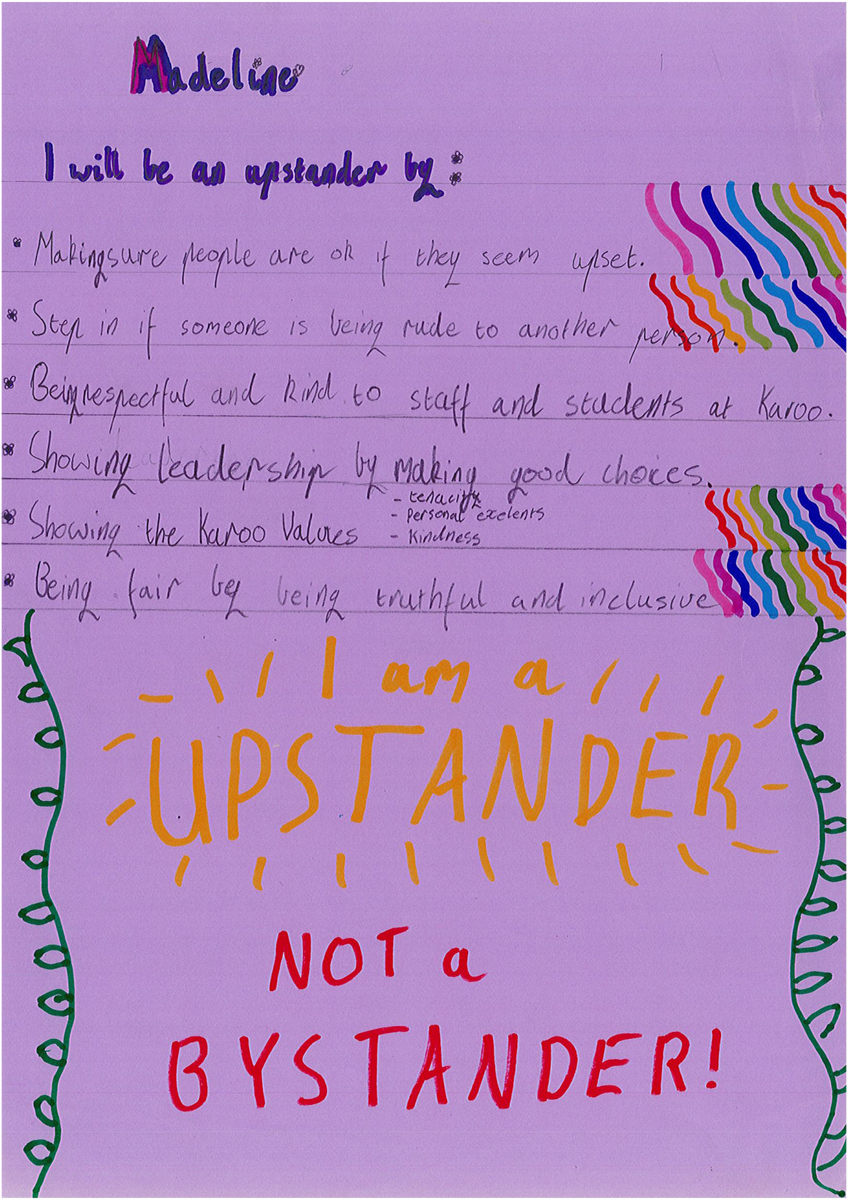

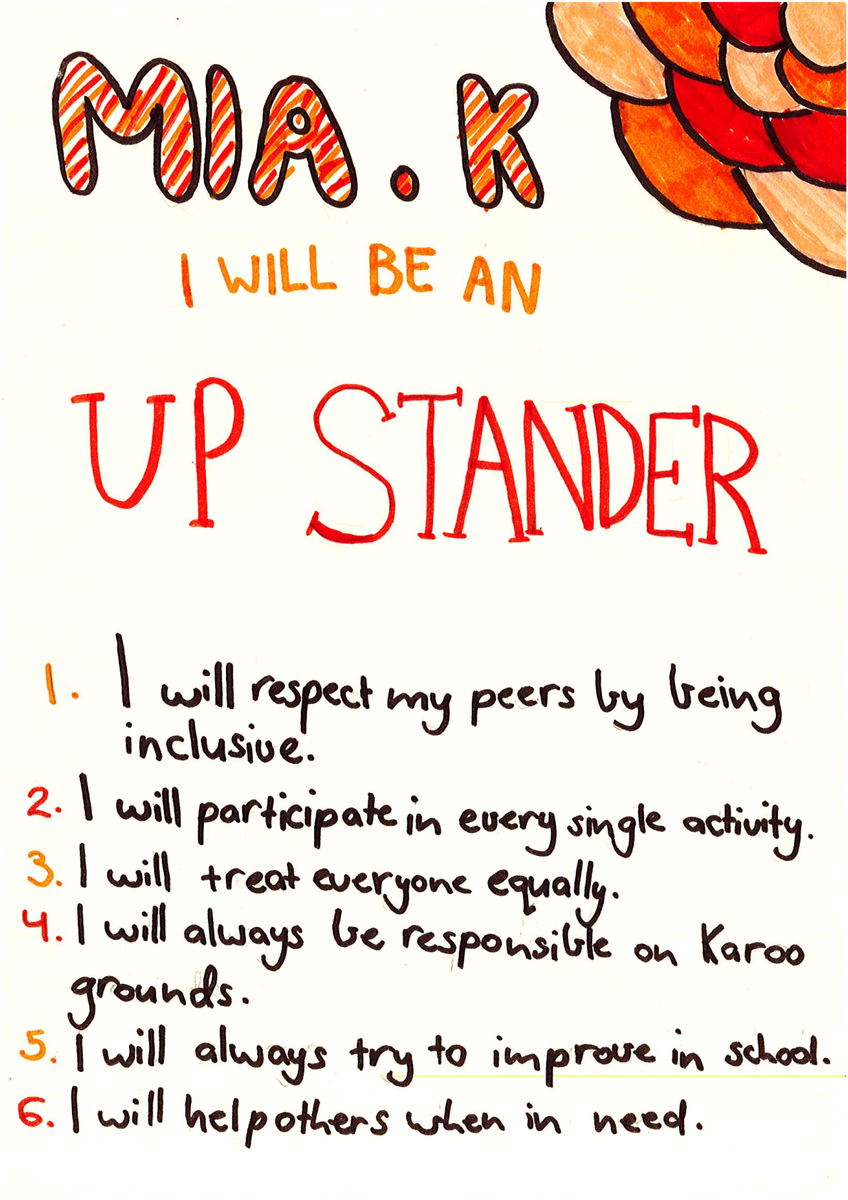
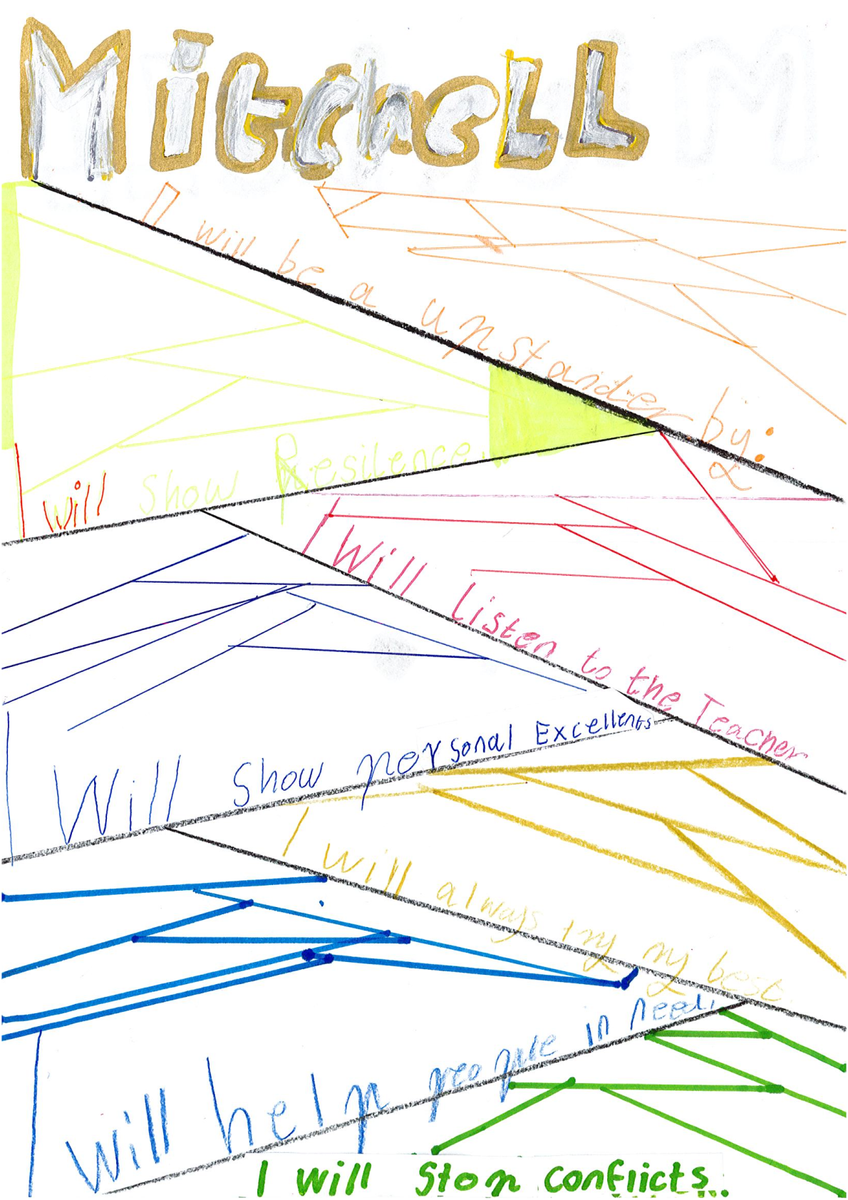










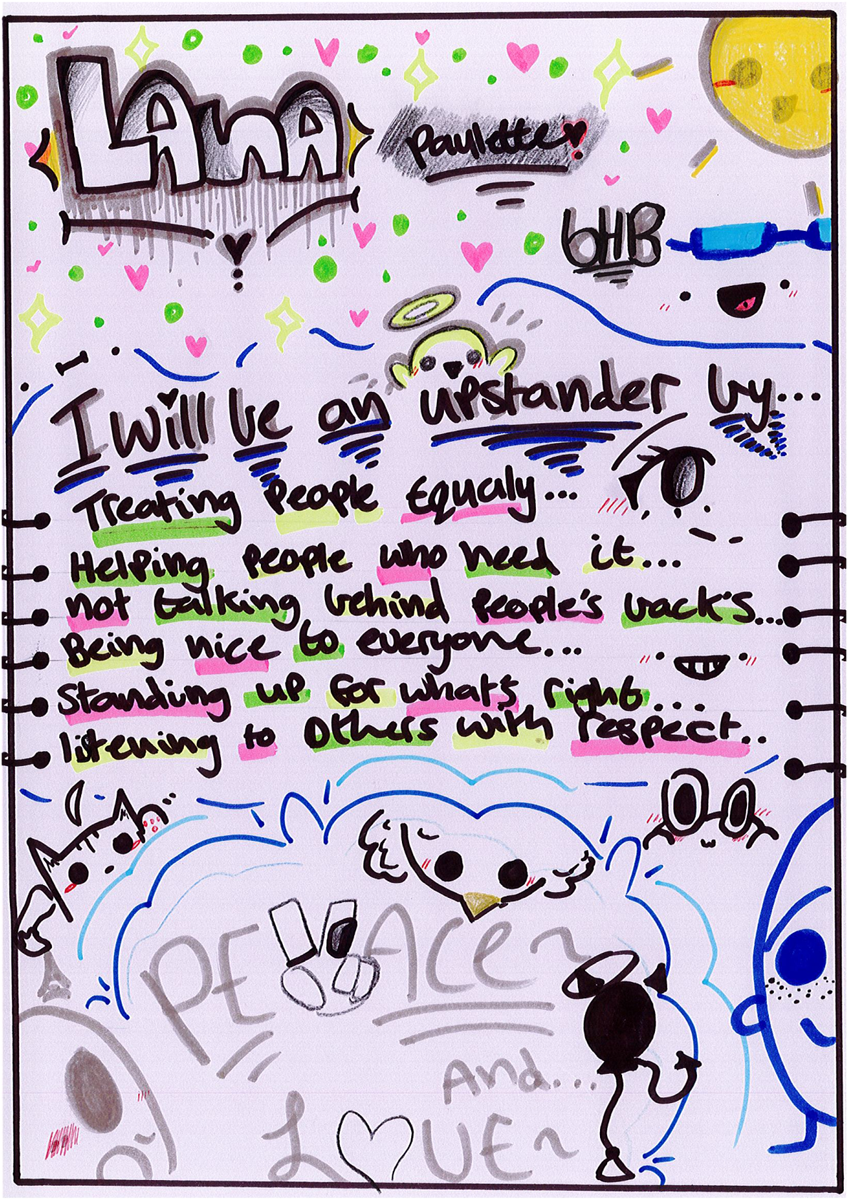

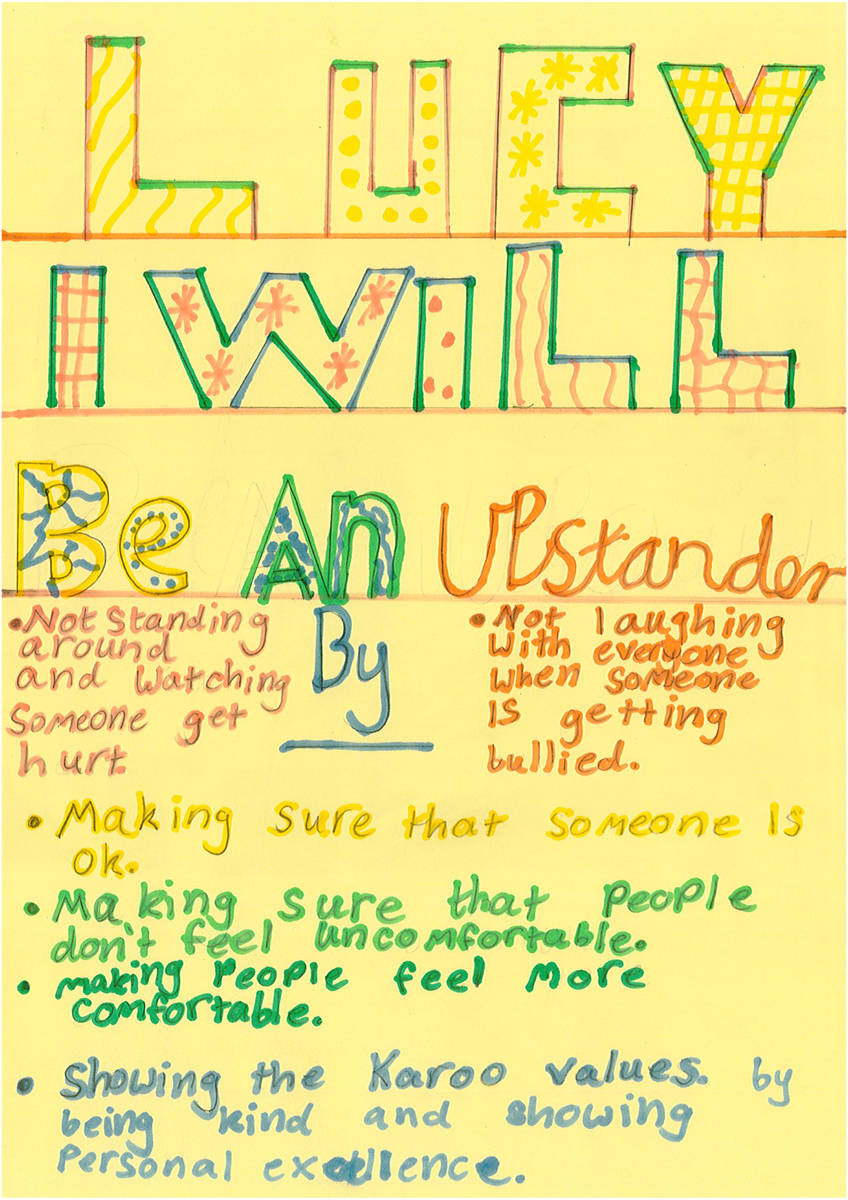


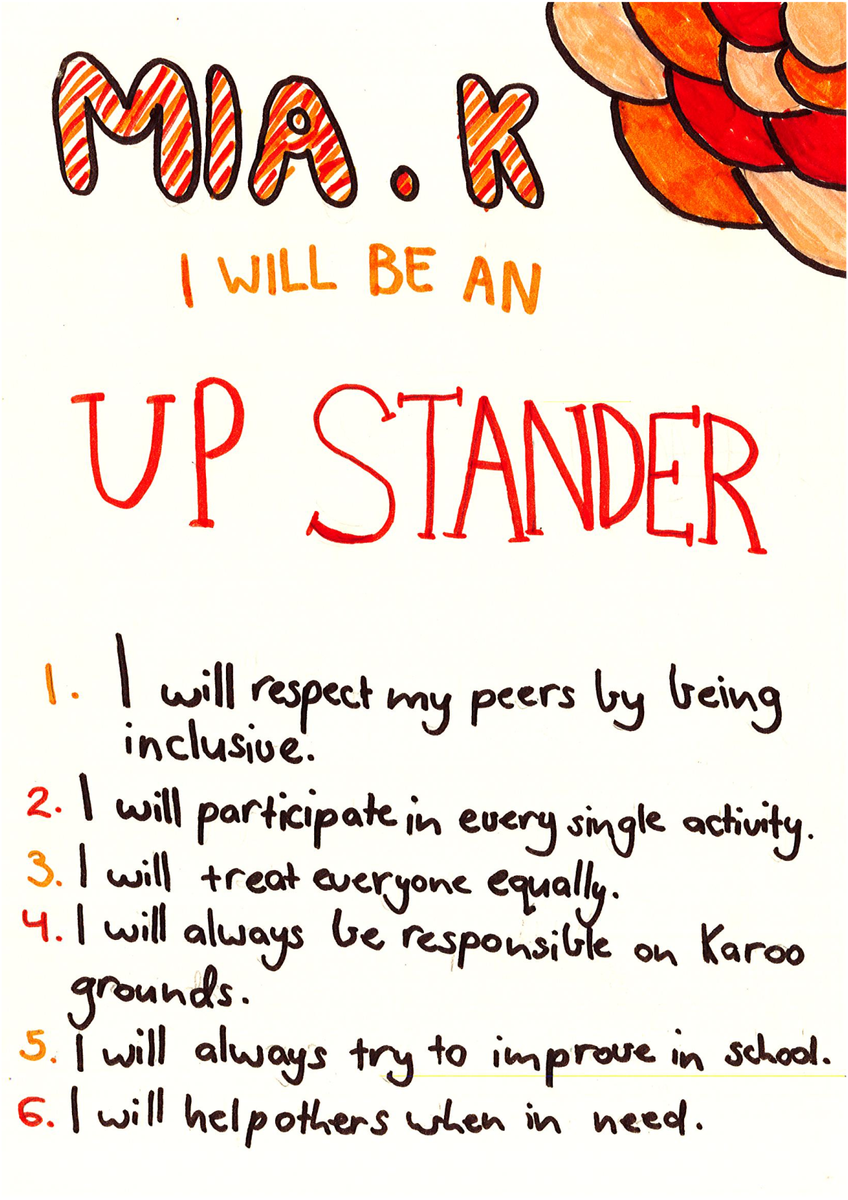

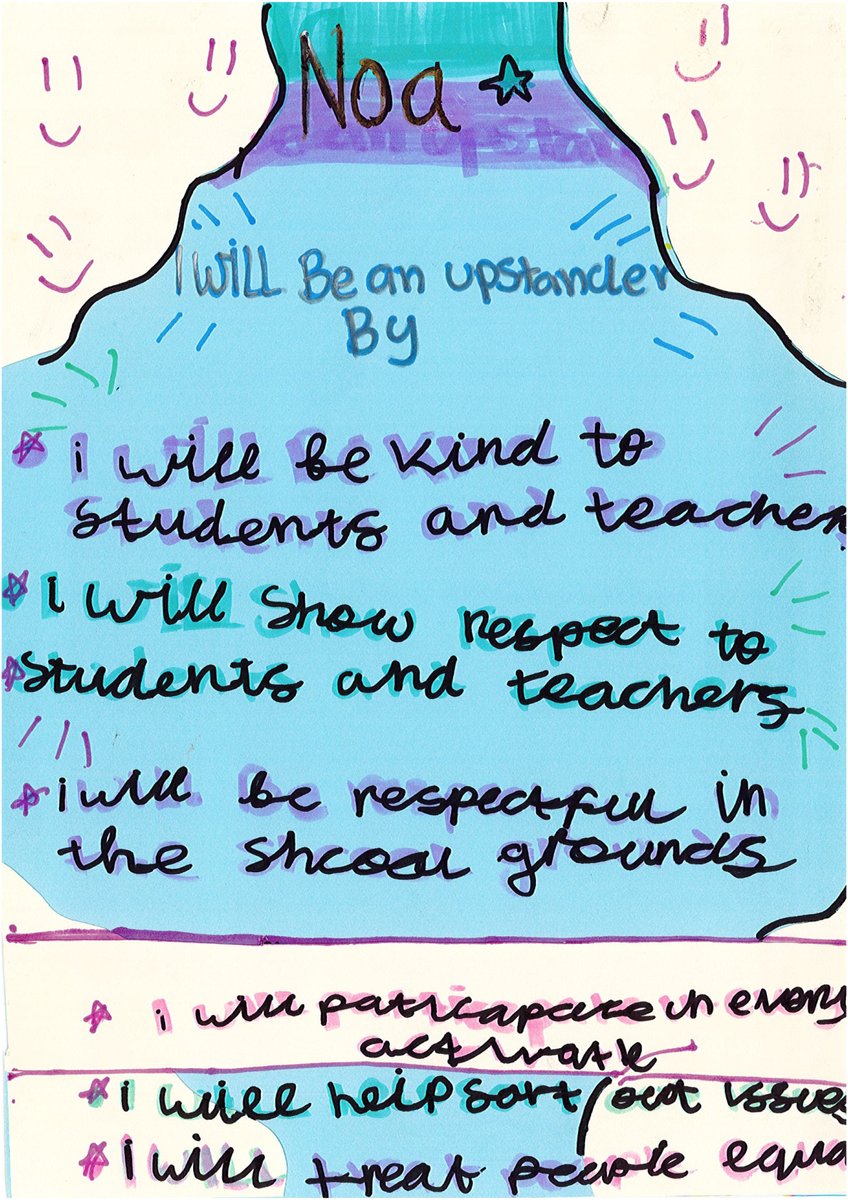
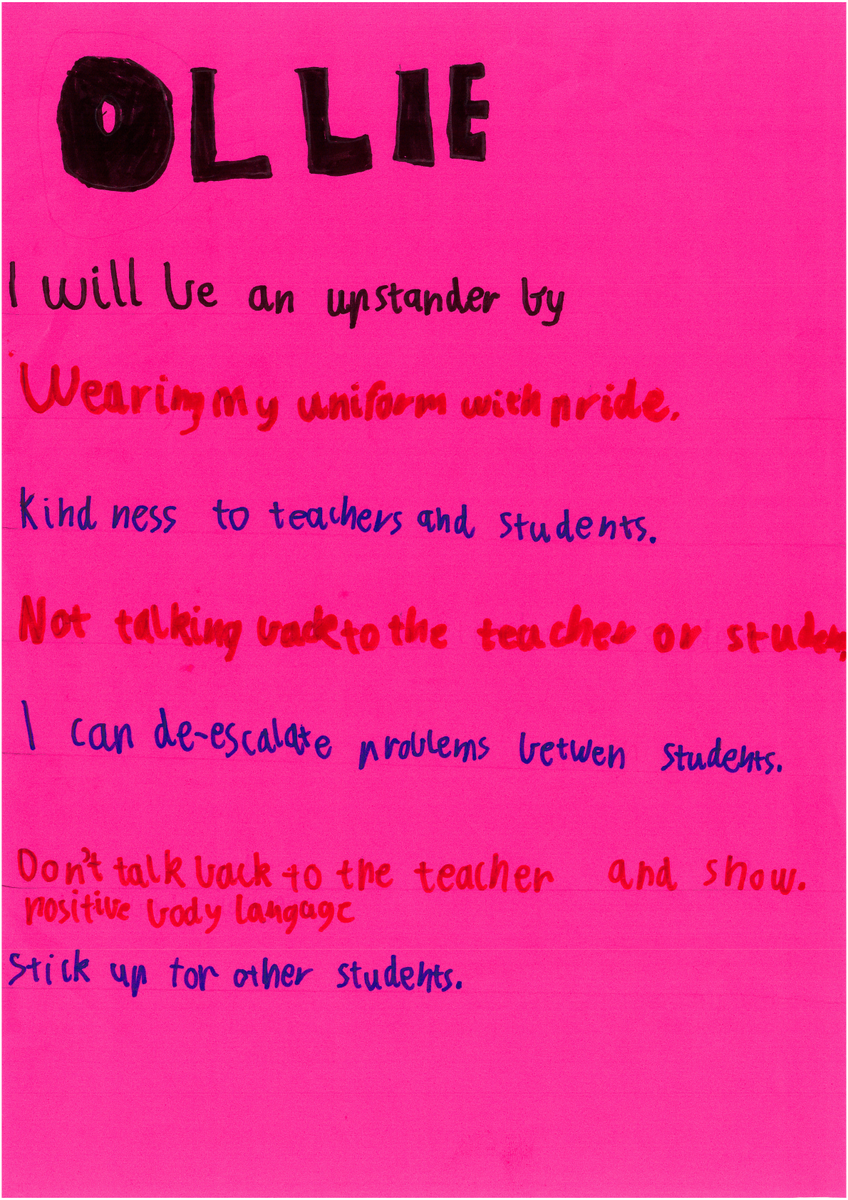
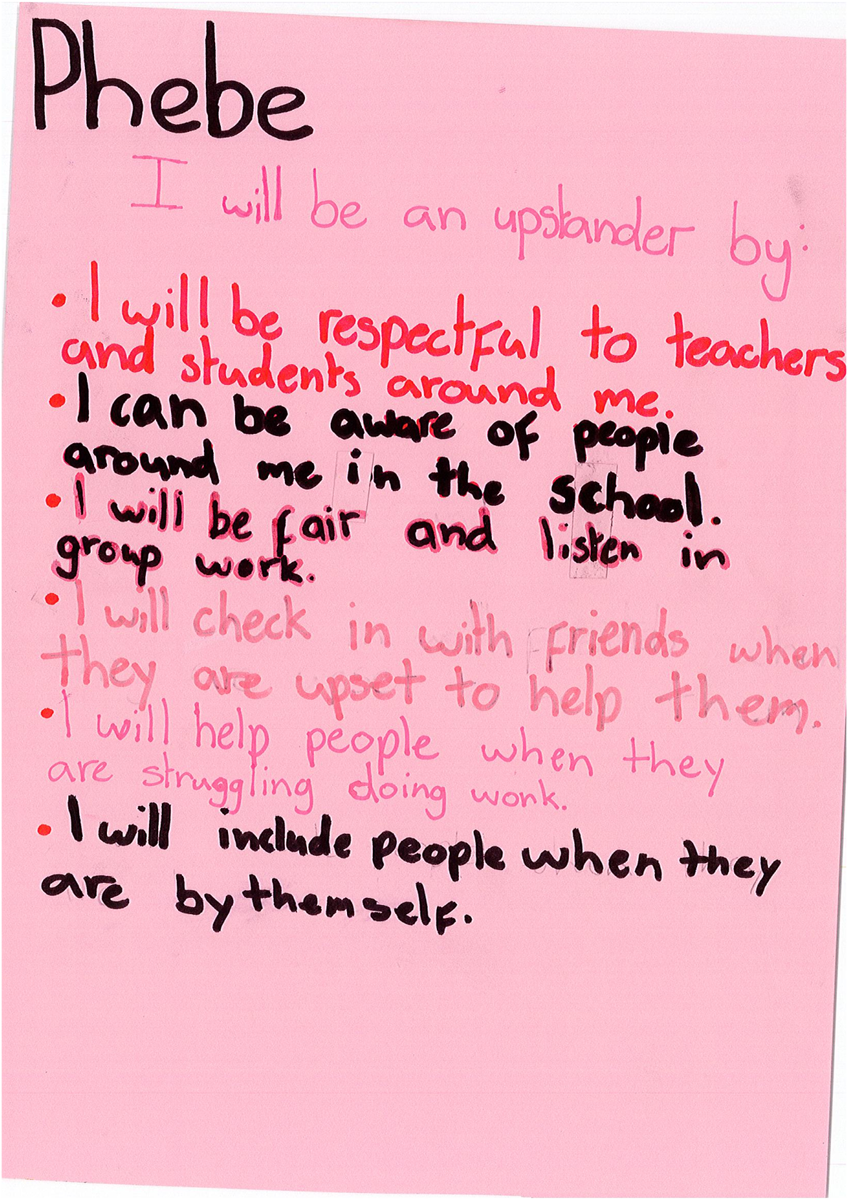











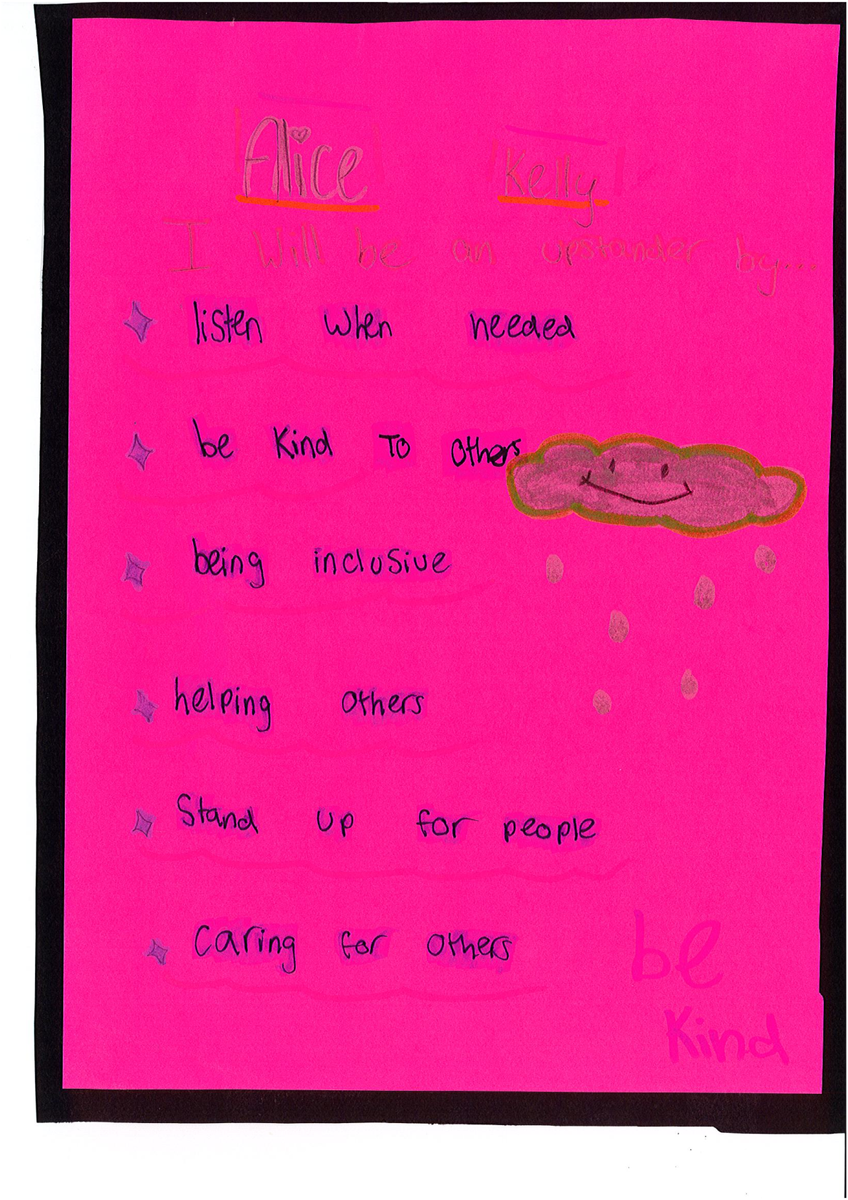
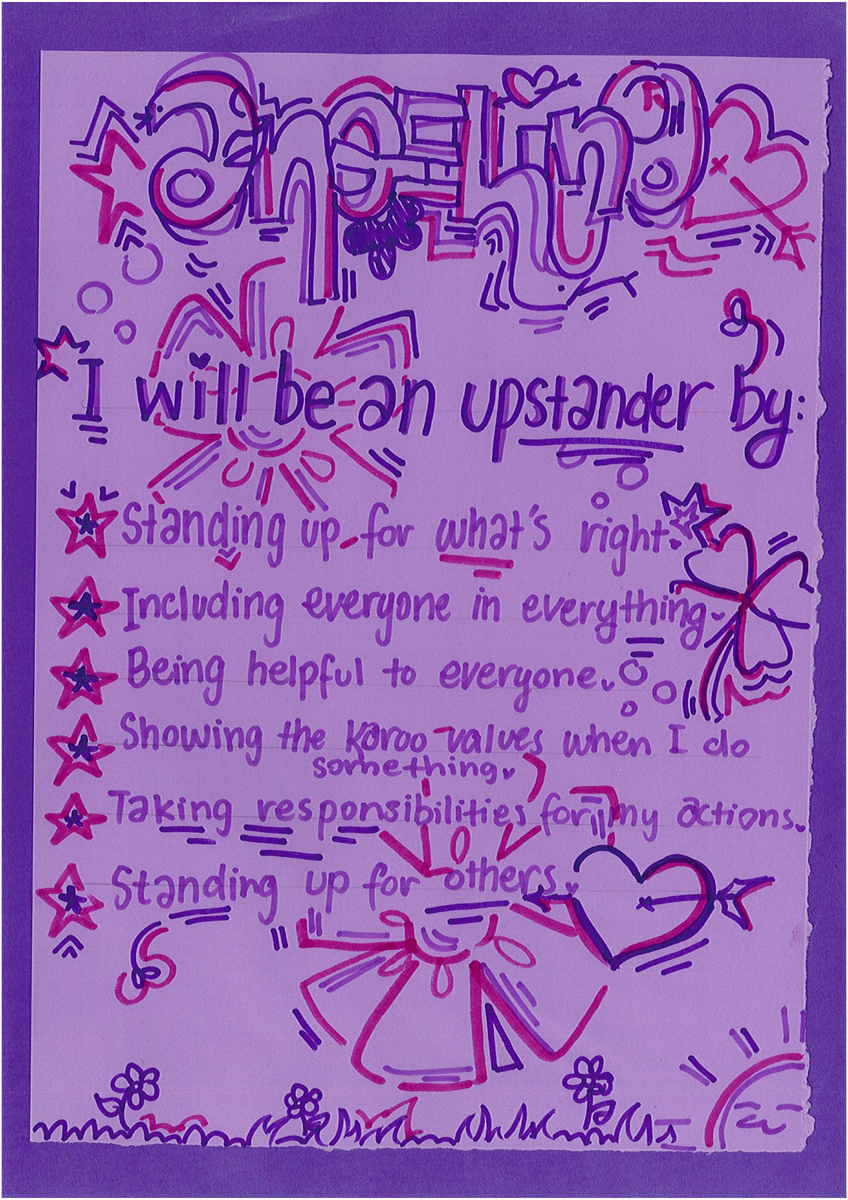
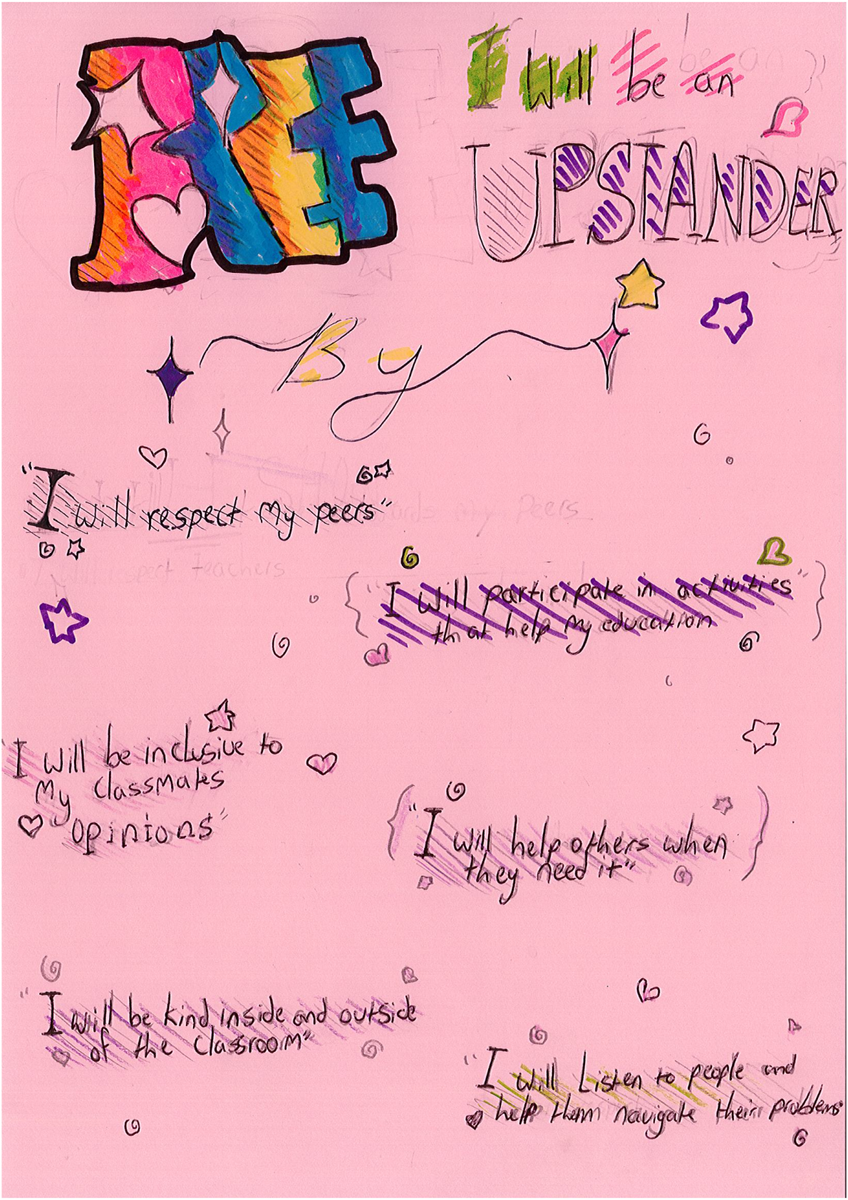

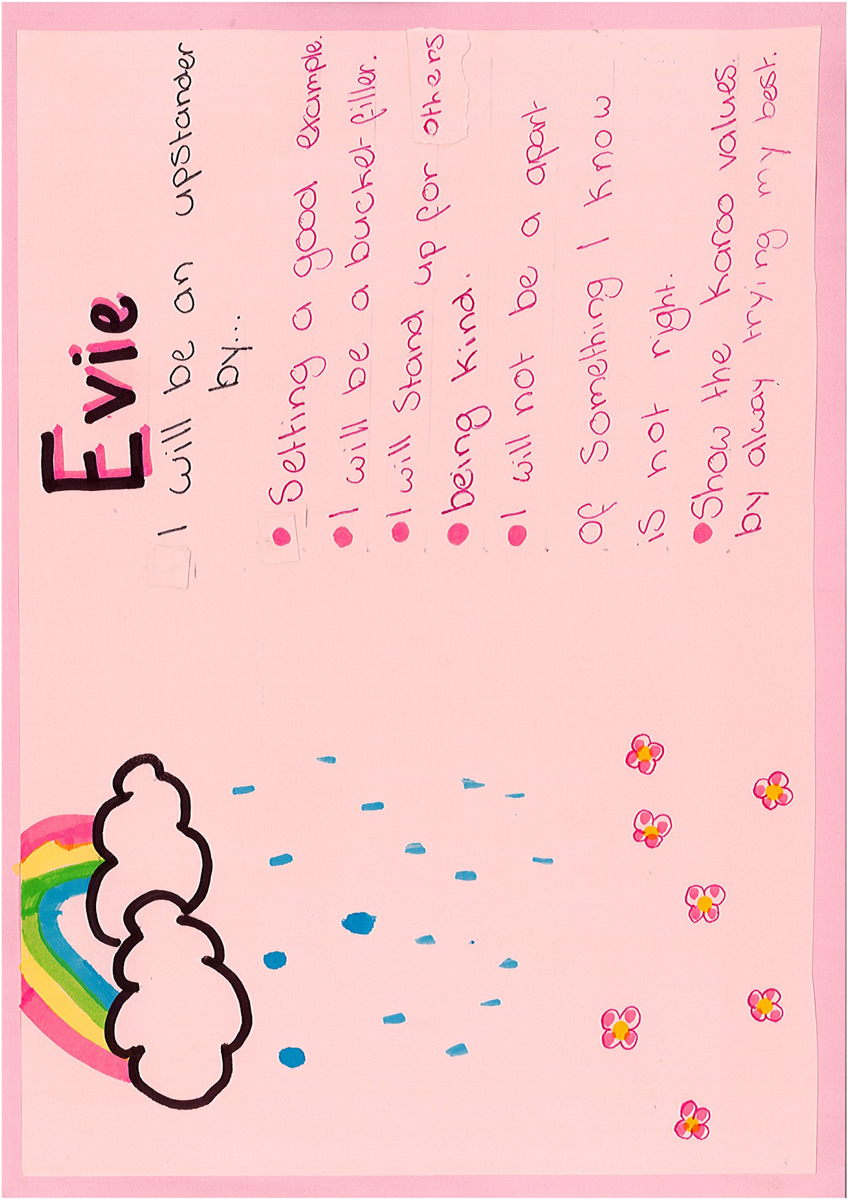
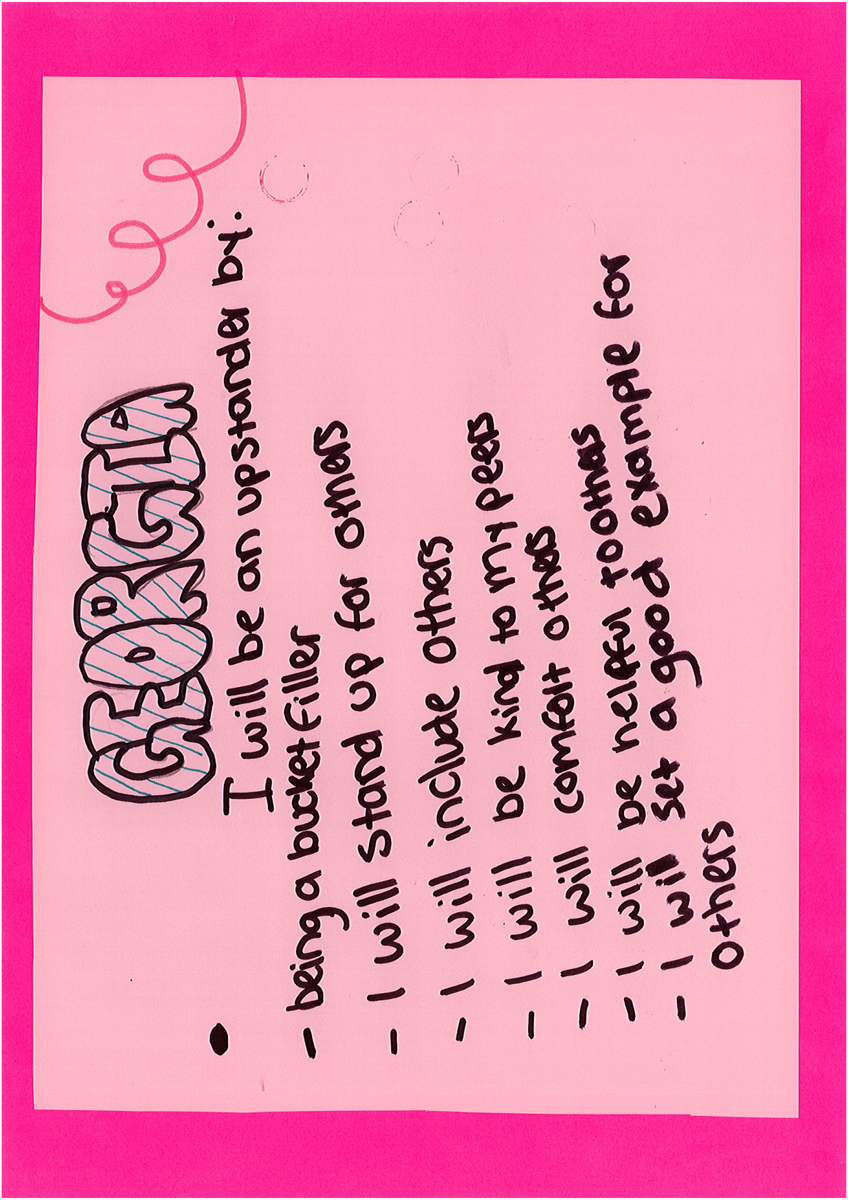
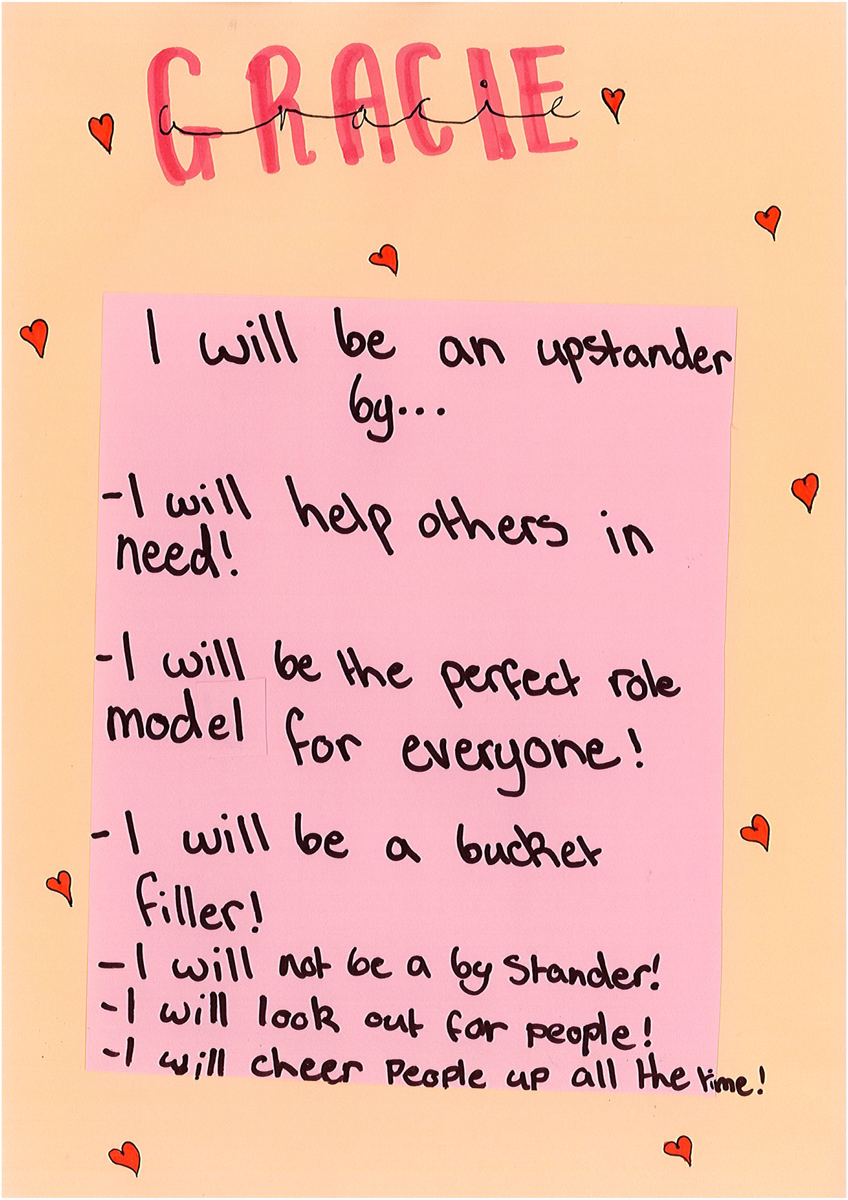
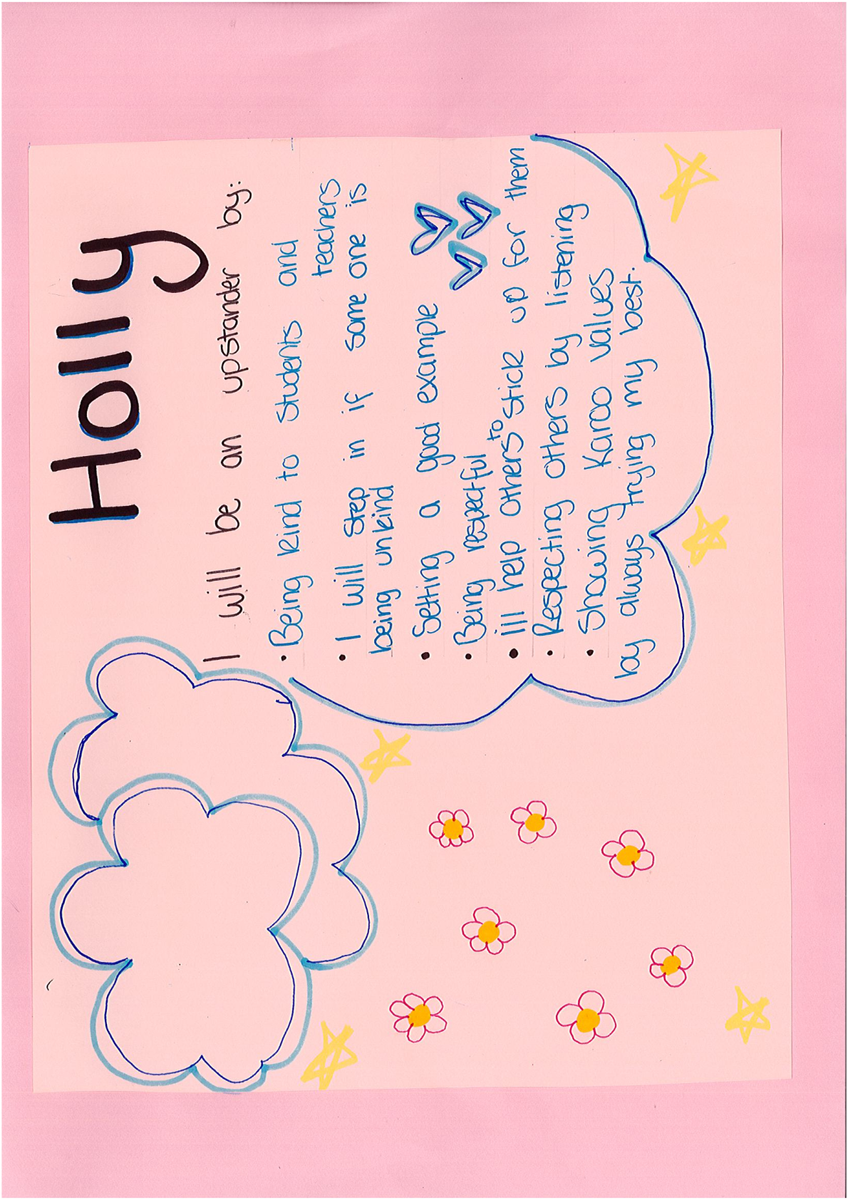











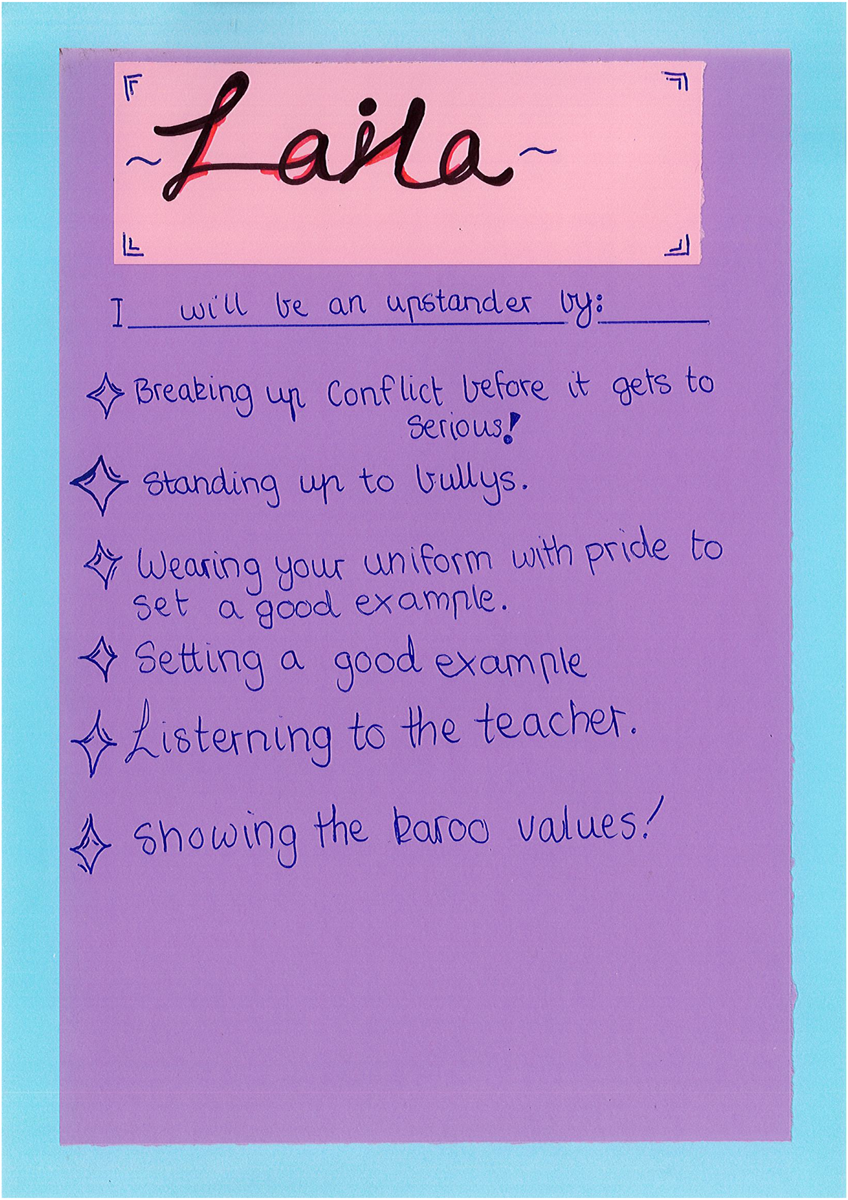
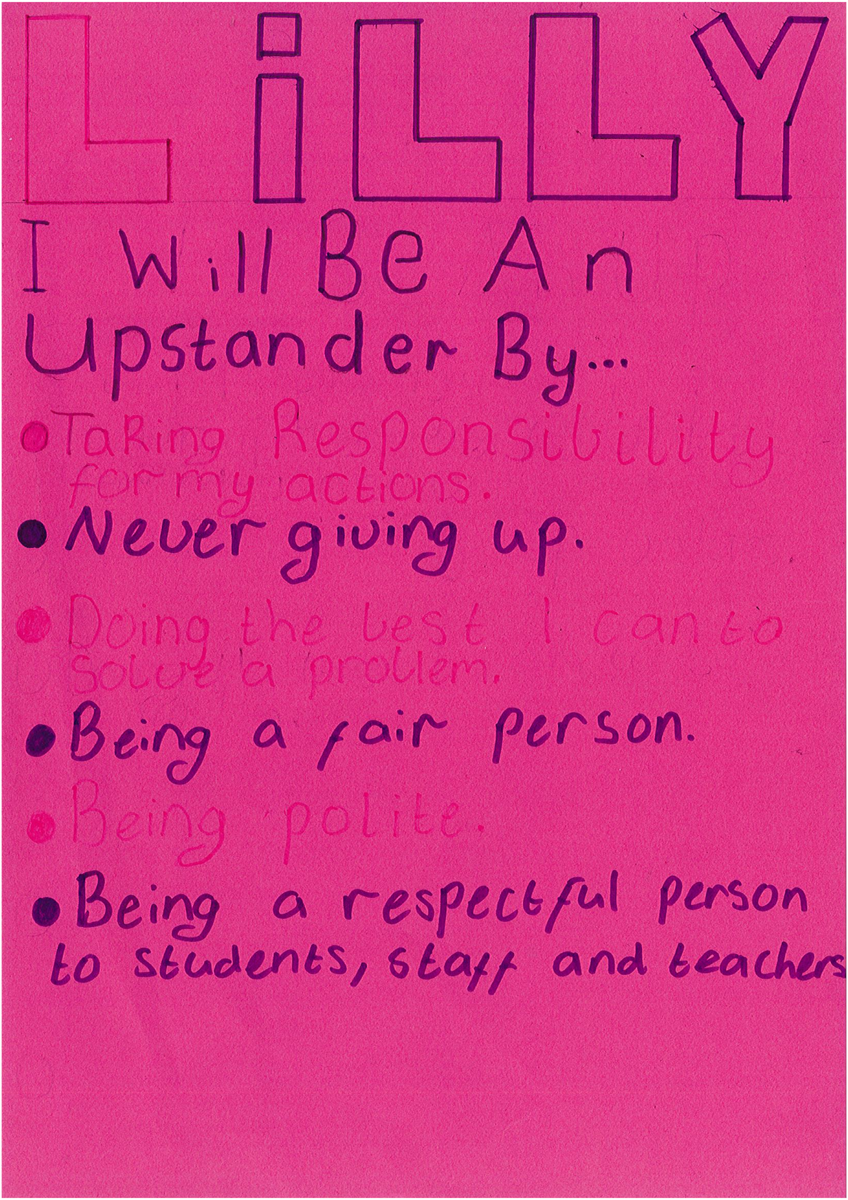
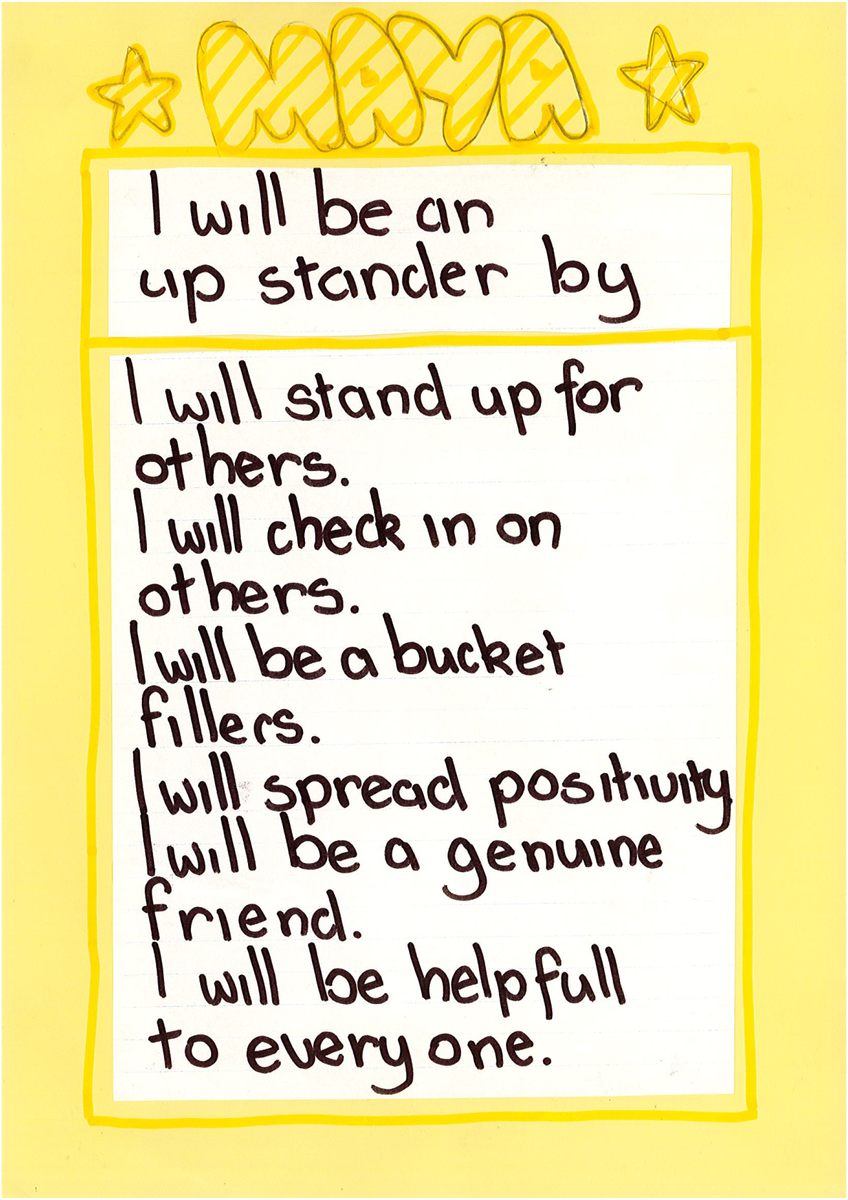
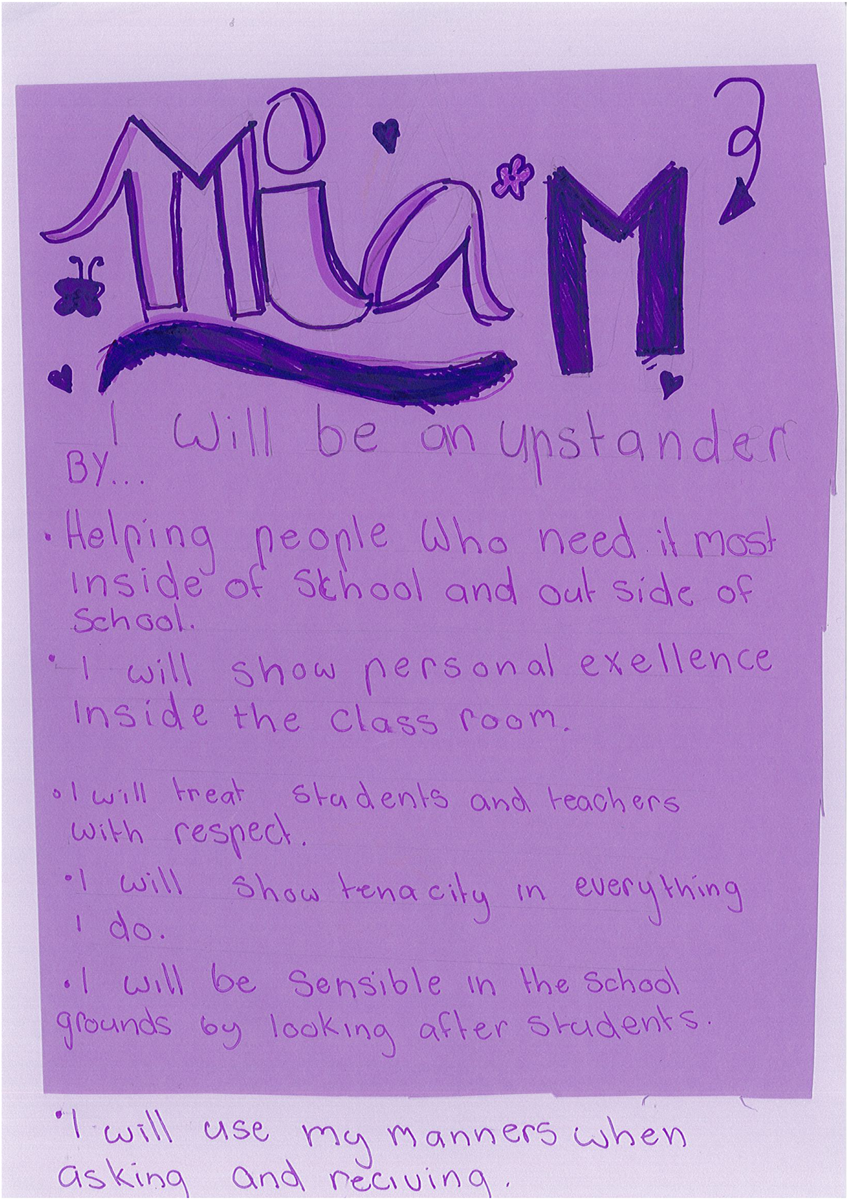

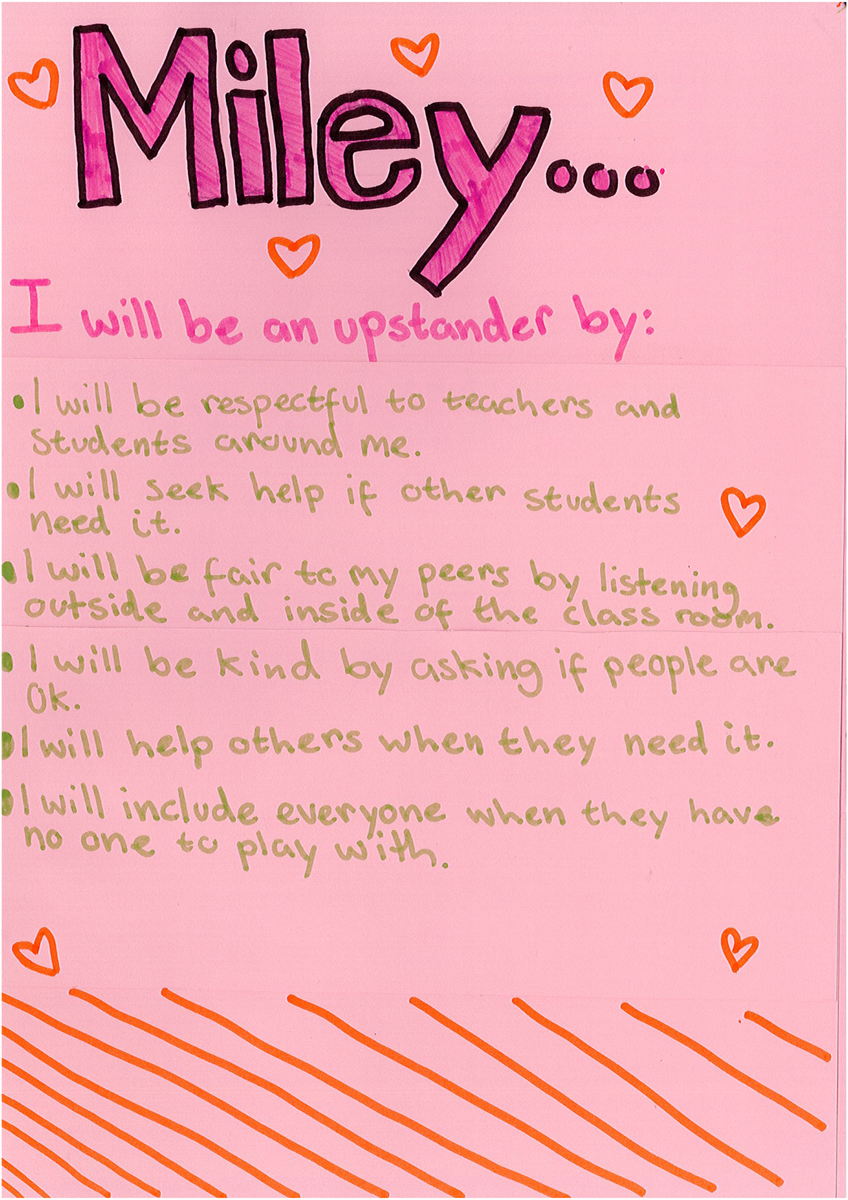
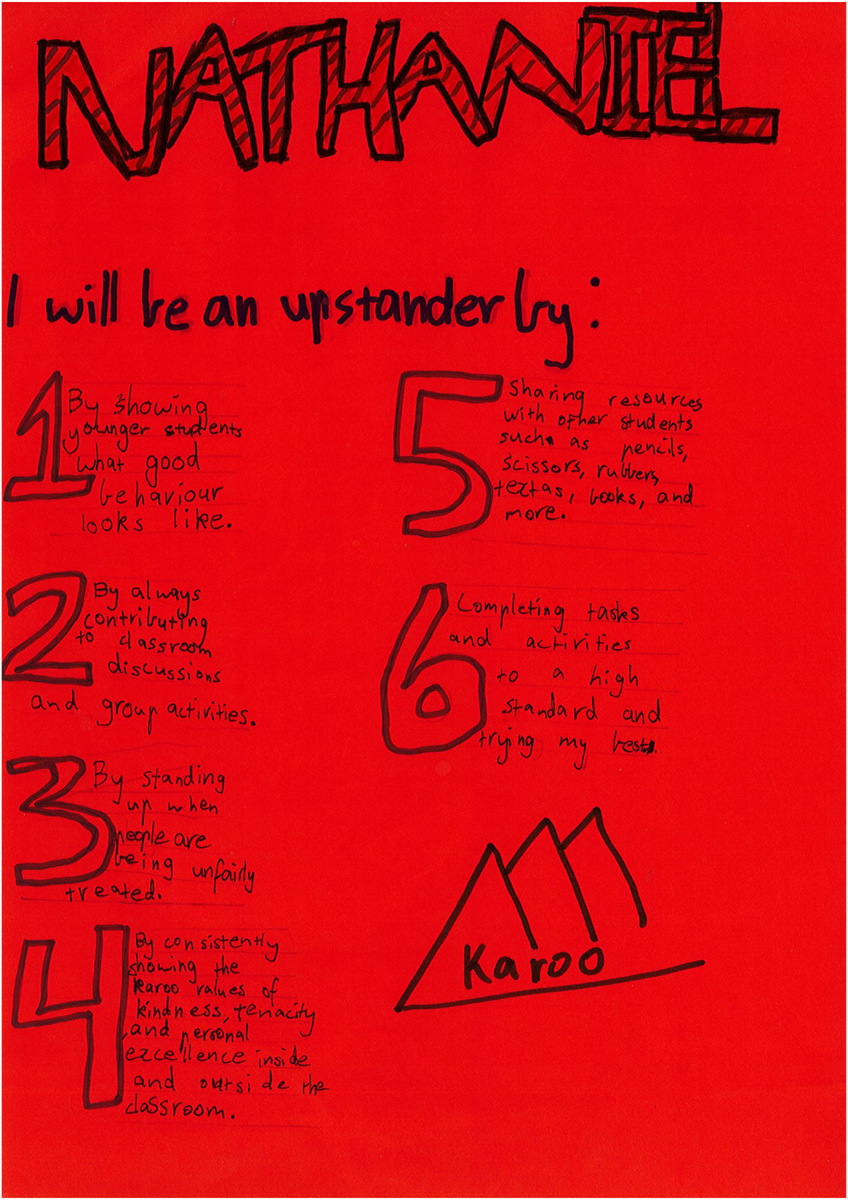
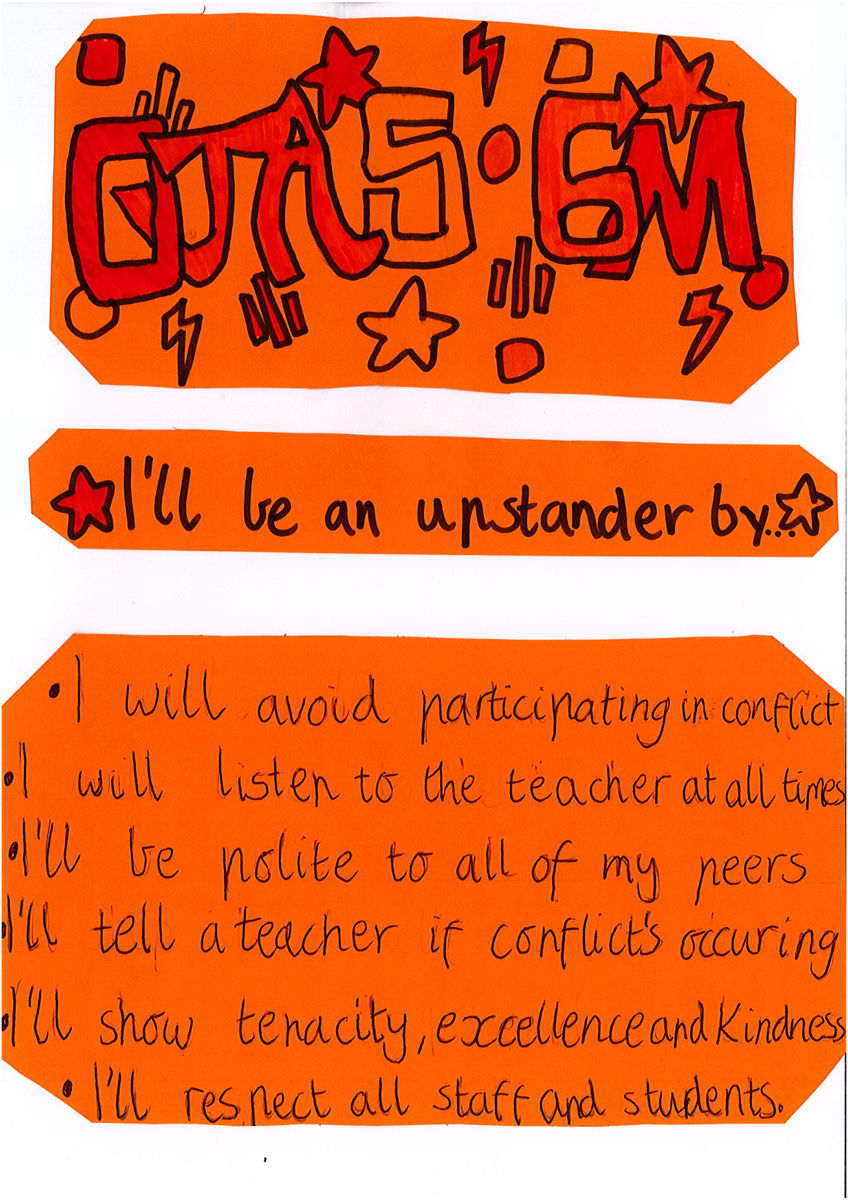
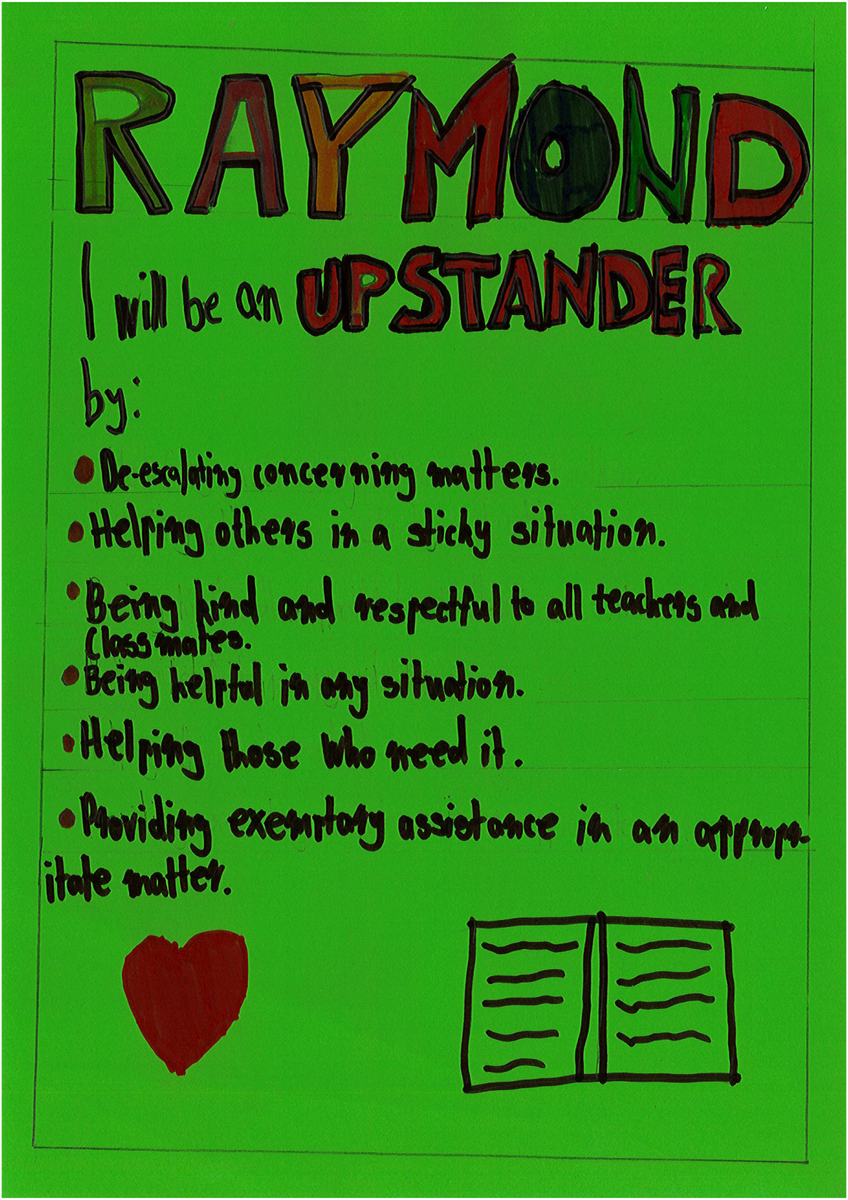
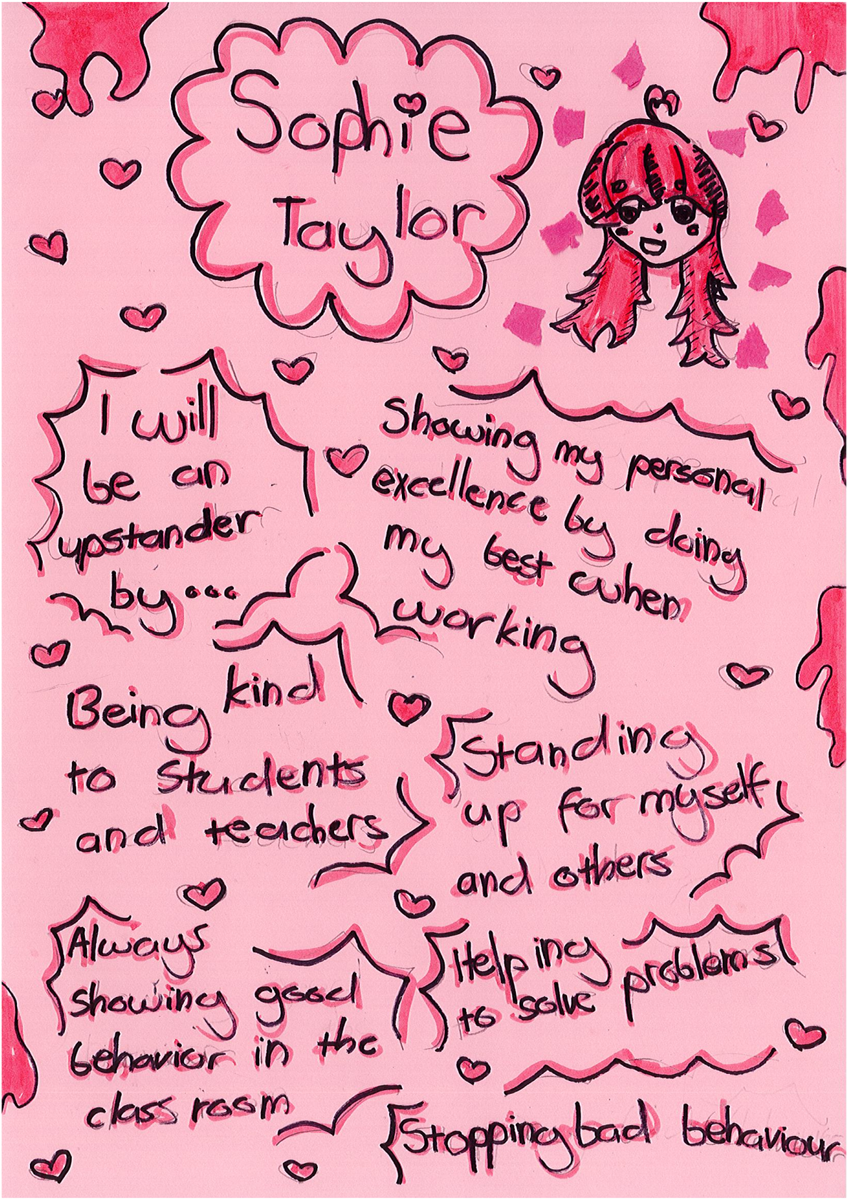
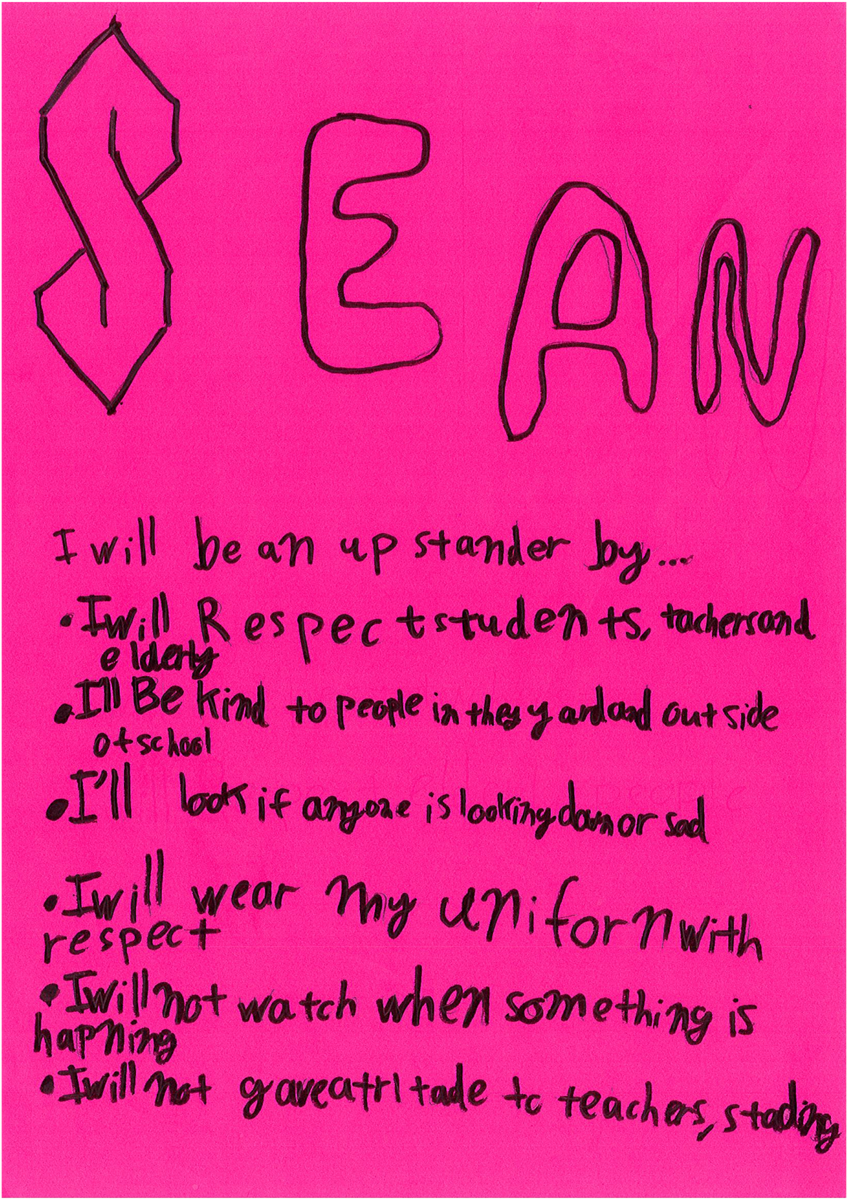


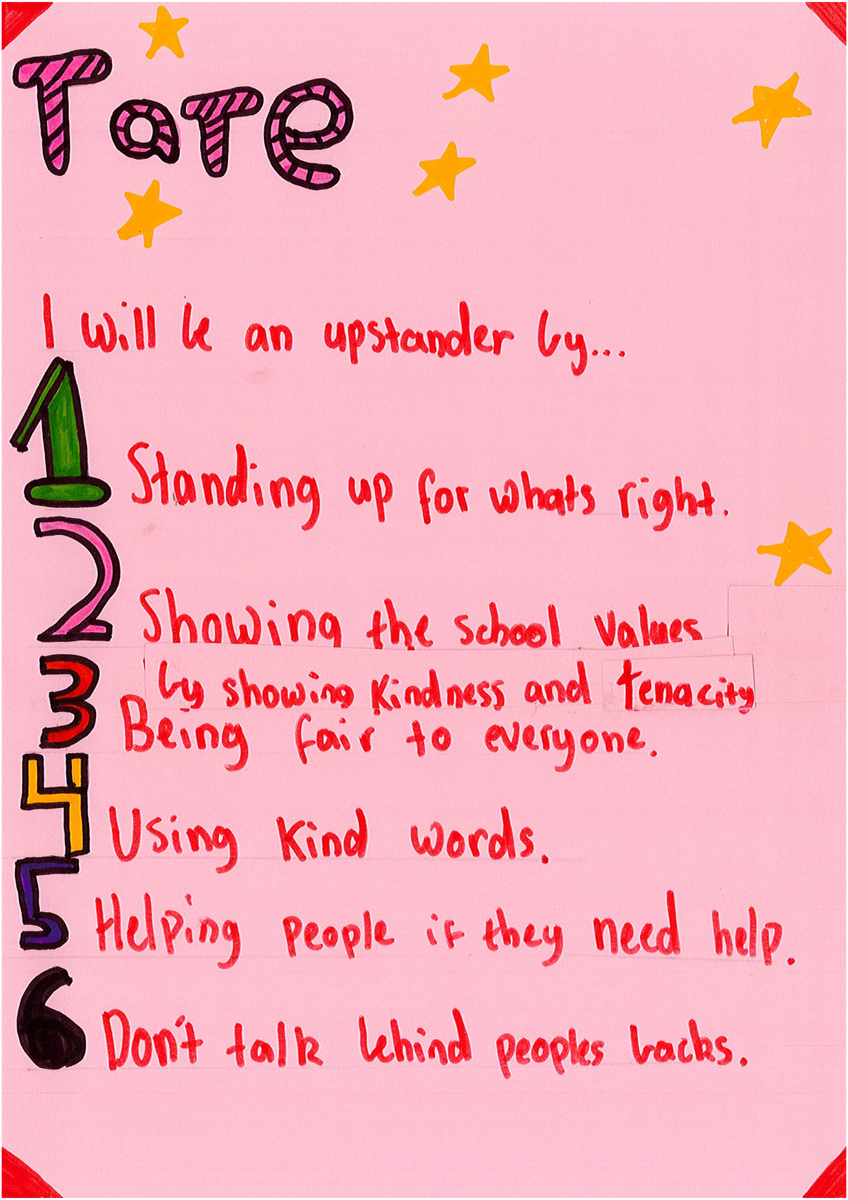
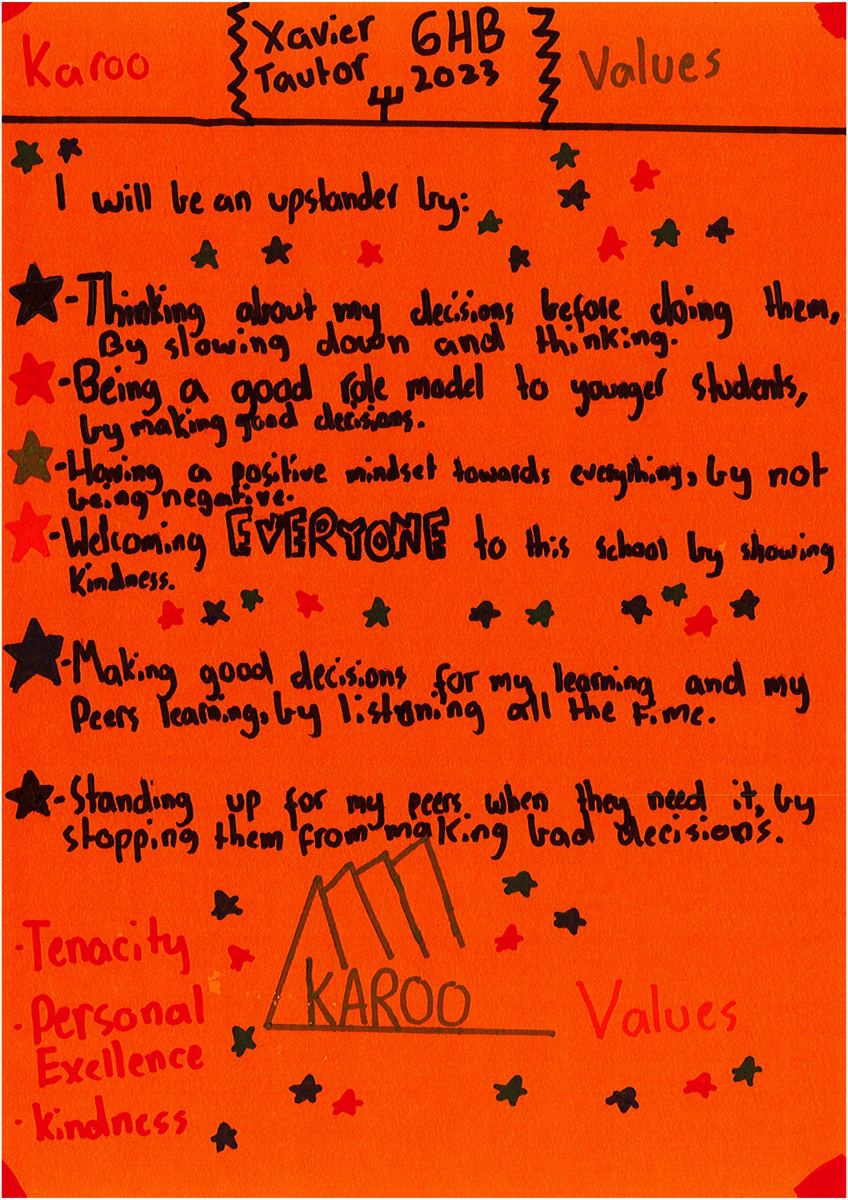


















Cultural Understanding and Safety Training (CUST)
Creating culturally safe and inclusive learning environment is everyone’s responsibility and one we take very seriously at Karoo PS. Over the past two weeks, Karoo PS Staff have engaged in Cultural Understanding and Safety Training (CUST) to continue to build on their knowledge and understanding in this area.
CUST is ongoing professional learning for educators to further their understanding on Aboriginal perspectives and how to make meaningful connections through the curriculum. The professional learning also provides meaningful collaboration between local Aboriginal communities and schools. Our CUST training was delivered by our Koorie Education Support Officer (KESO) Lea Jones which she presented on Wurundjeri Land.
Over the holidays, new flag poles were installed, so now the Aboriginal and Torres Straight Islander flags can proudly fly alongside the Australian Flag. We look forward to engaging in further actions in this area to foster a culturally safe and inclusive environment at Karoo PS.
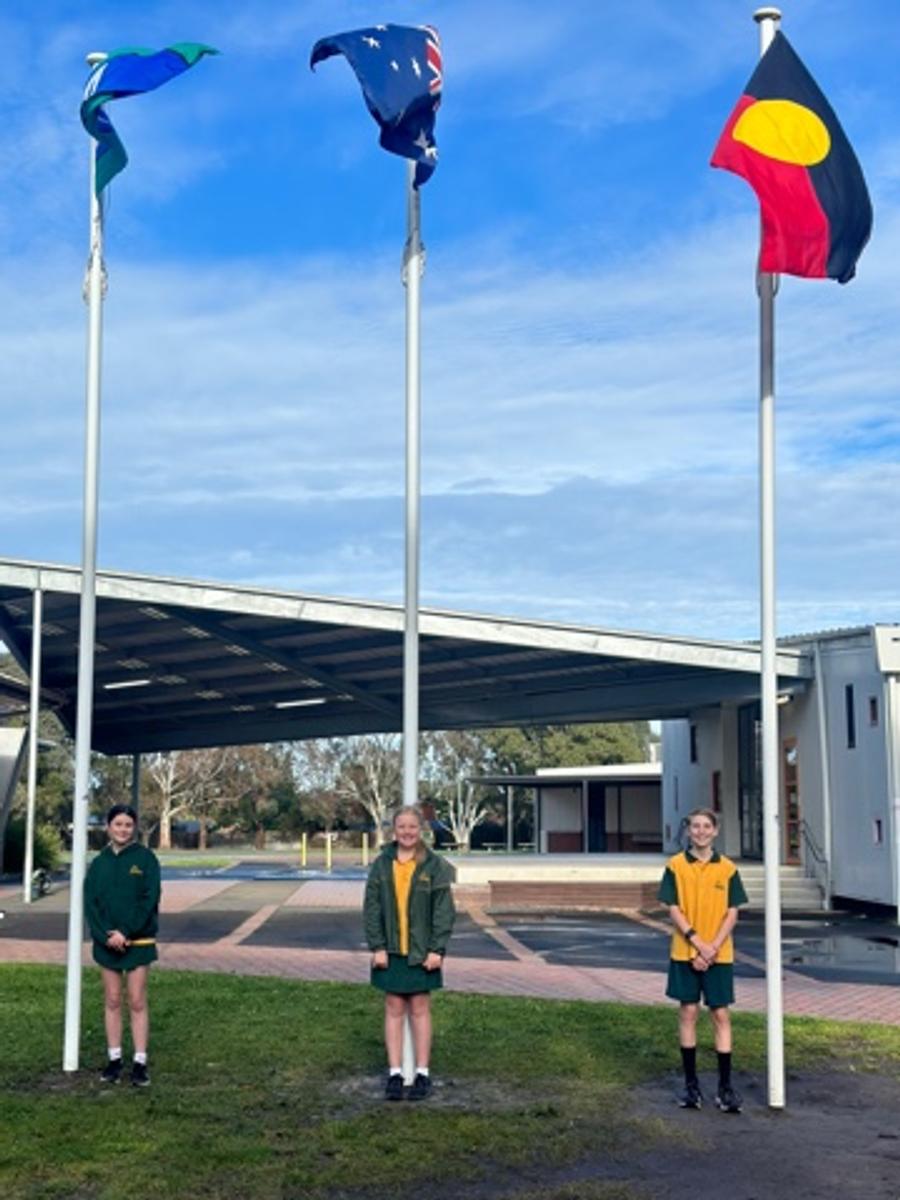

Enjoy a wonderful start to the term and I look forward to seeing you all soon.
Kind Regards,
Courtney Hoffmann
Wellbeing and Inclusion Assistant Principal (A)

